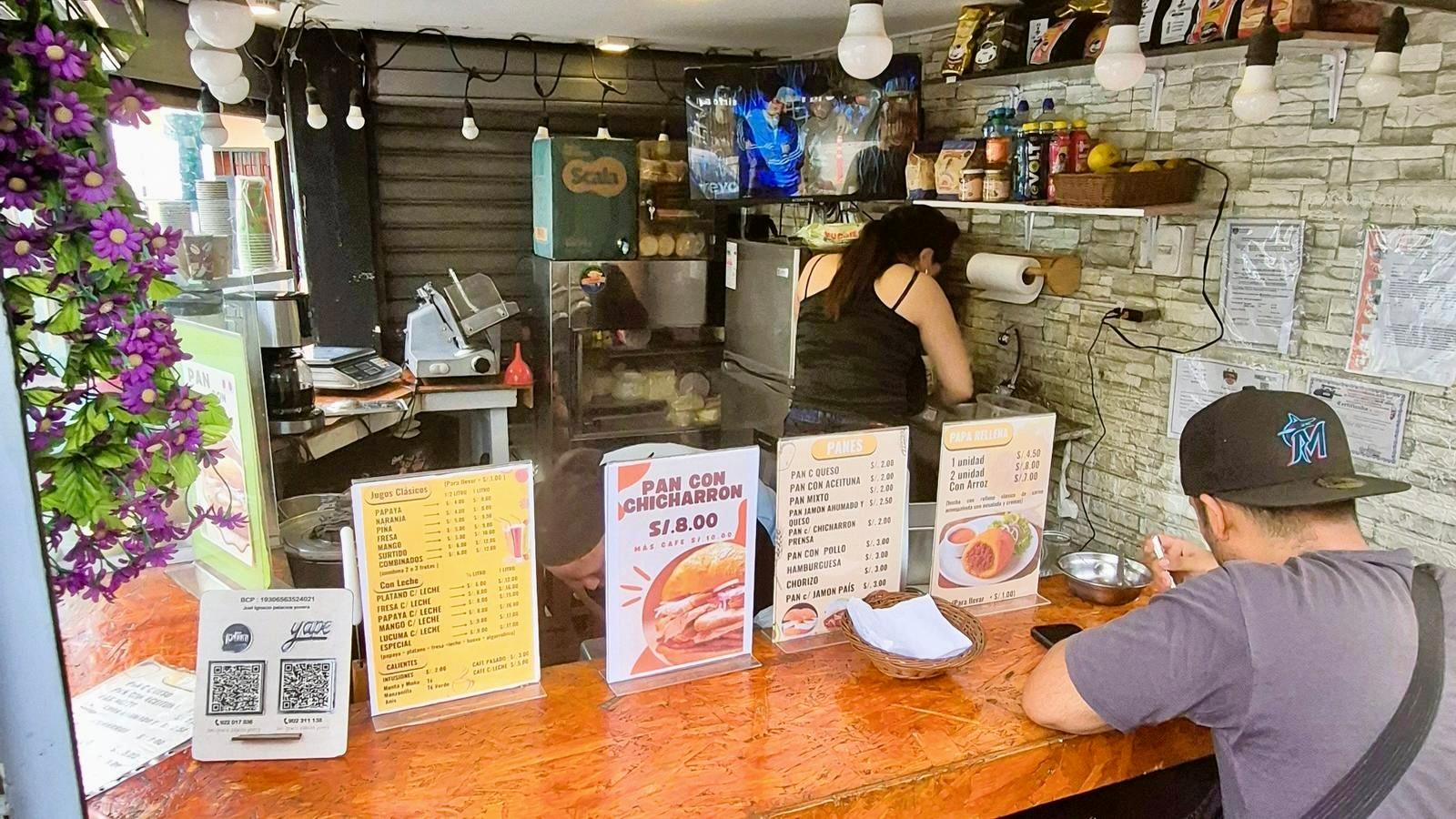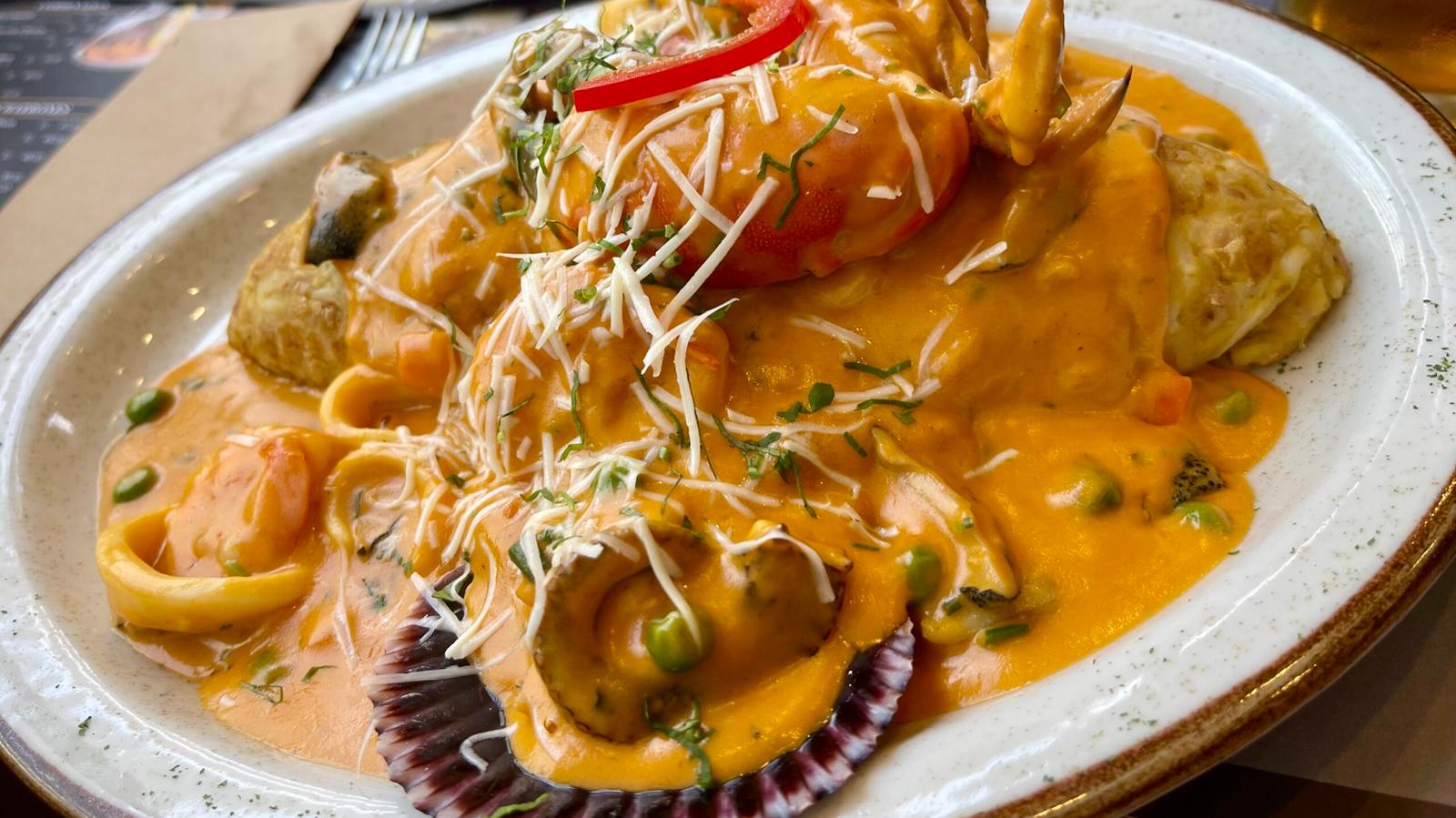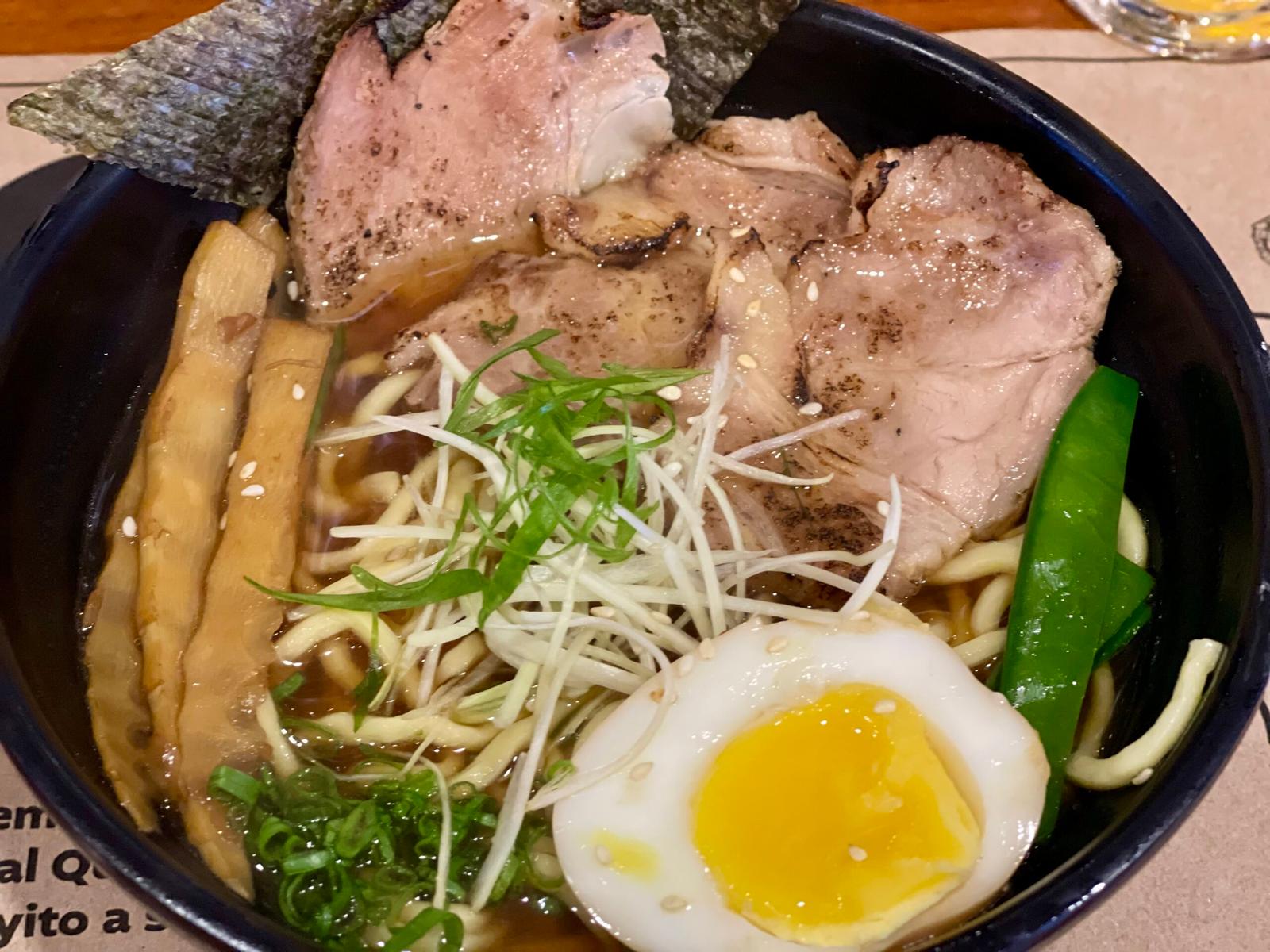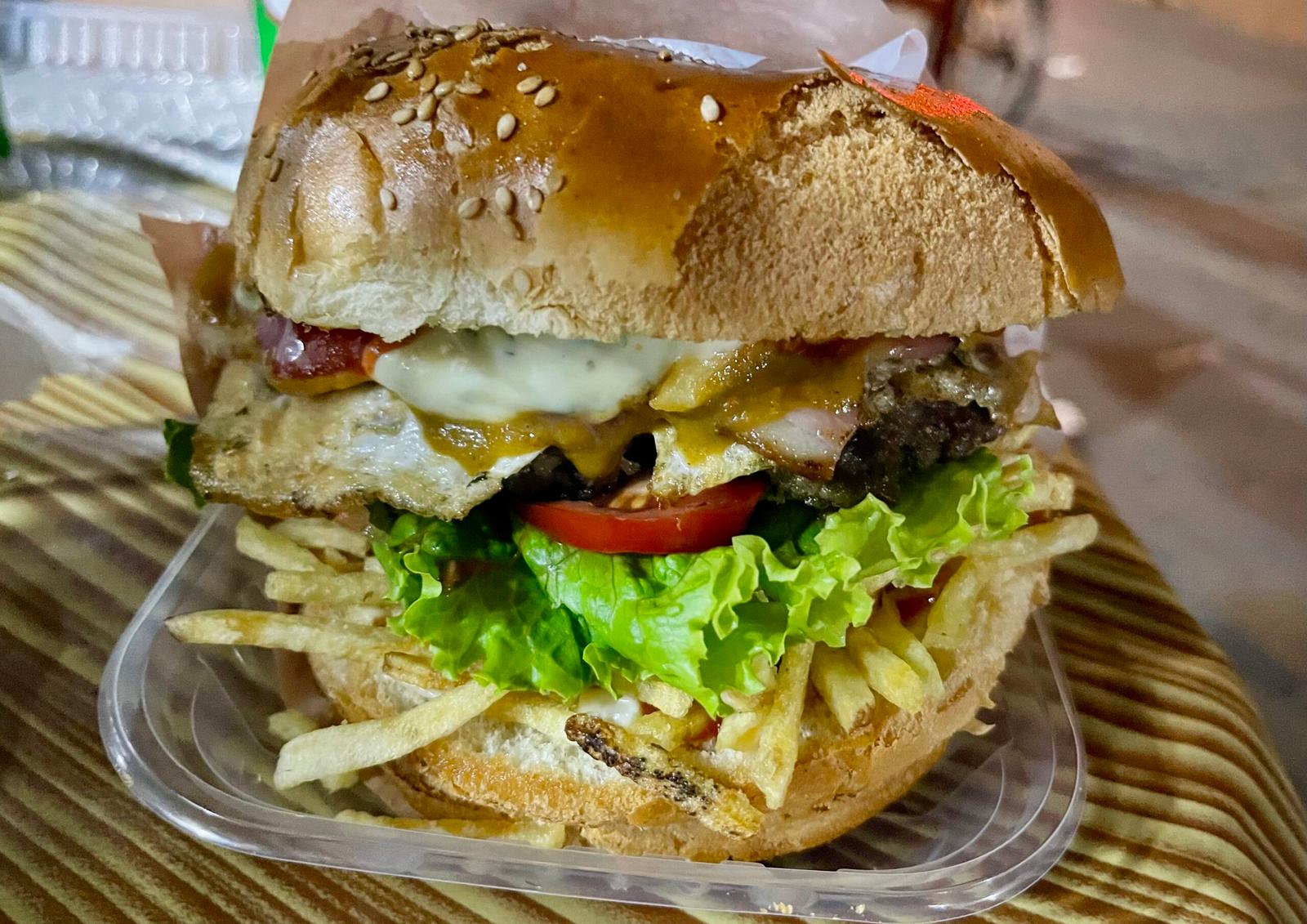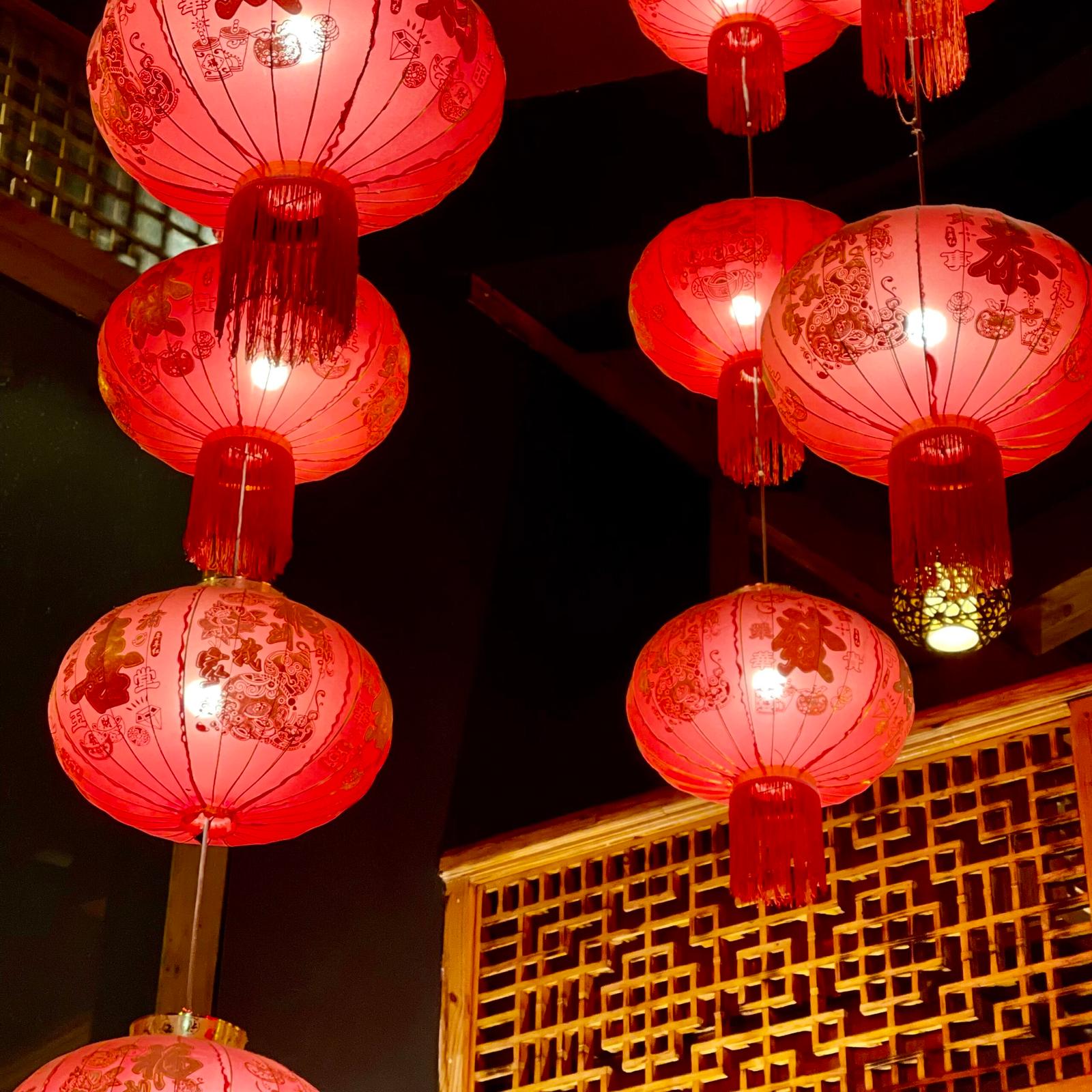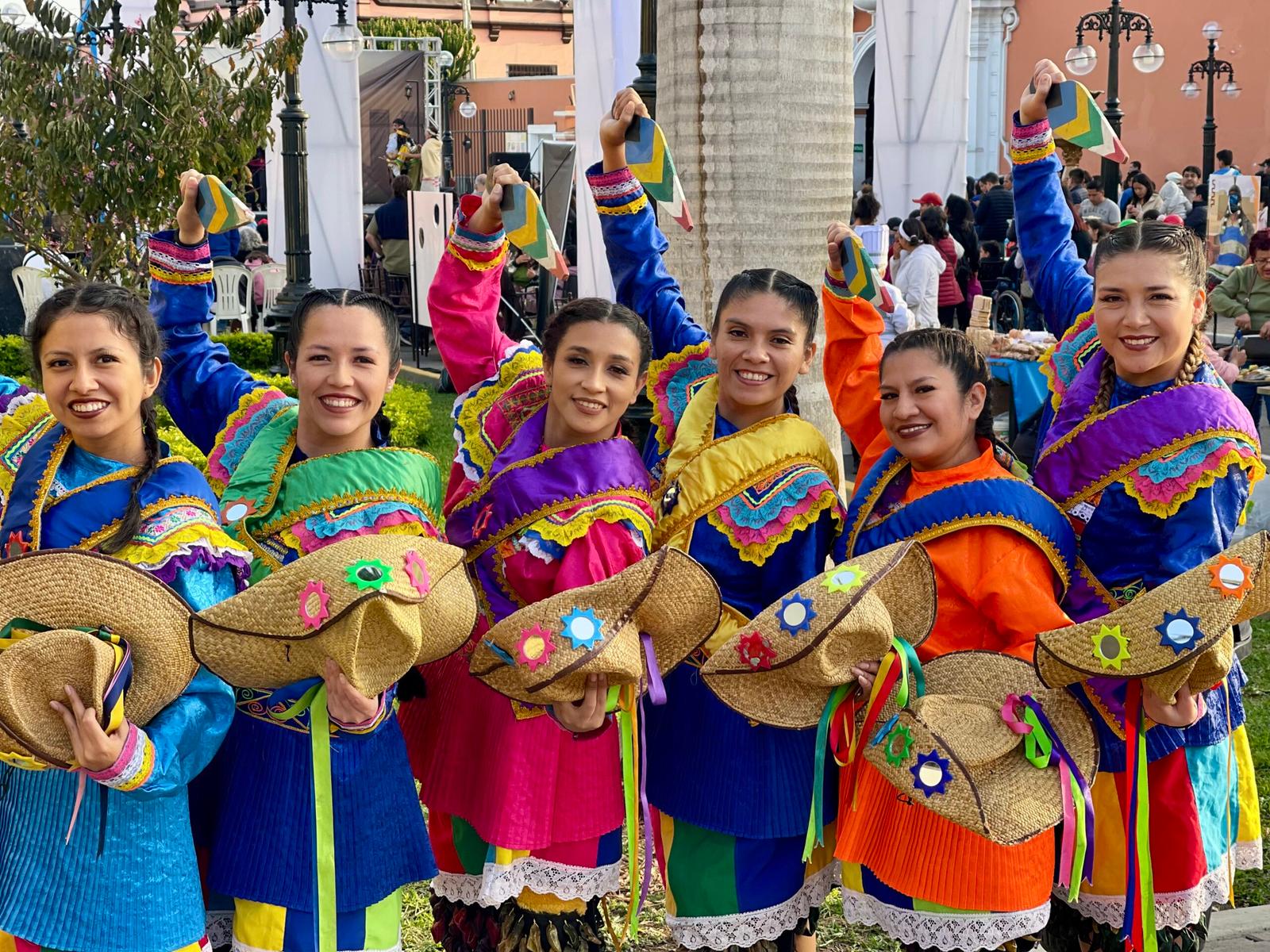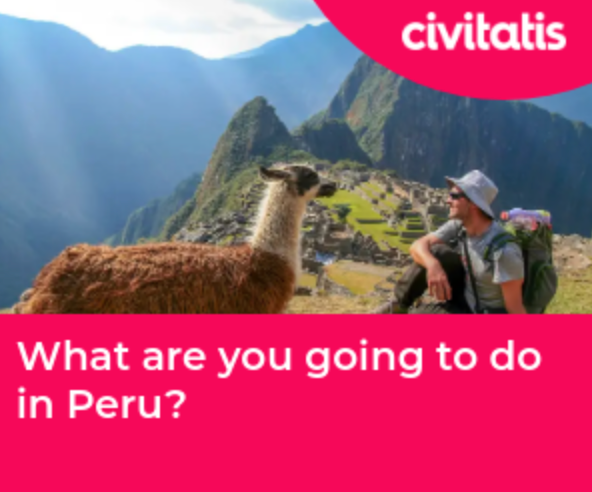Pueblo Libre, a charming district within the bustling city of Lima, holds a unique distinction. Known as the “Villa de los Libertadores,” this historic enclave has been home to an extraordinary number of influential figures who have shaped the course of Peruvian and South American history.
If you’re exploring historical places in Lima or seeking a deeper understanding of Peru’s past, discovering the famous people in Peruvian history who once resided in Pueblo Libre is a captivating journey. Pueblo Libre or ‘Free Town,’ truly echoes with the legacies of its illustrious former residents.
Here, we delve into the lives of the 26 individuals honored with busts along the Paseo de los Vecinos Ilustres, offering a glimpse into their contributions and their connection to this significant district – a key highlight of the things to do in Pueblo Libre.
1. Don Gonzalo Taulichusco
Don Gonzalo Taulichusco was the last Gobernador Indígena (Indigenous Governor) of Lima during the early colonial period. He played a crucial role in the transition after the Spanish conquest and notably donated the land upon which the historic Santa María Magdalena Church in Pueblo Libre was built.
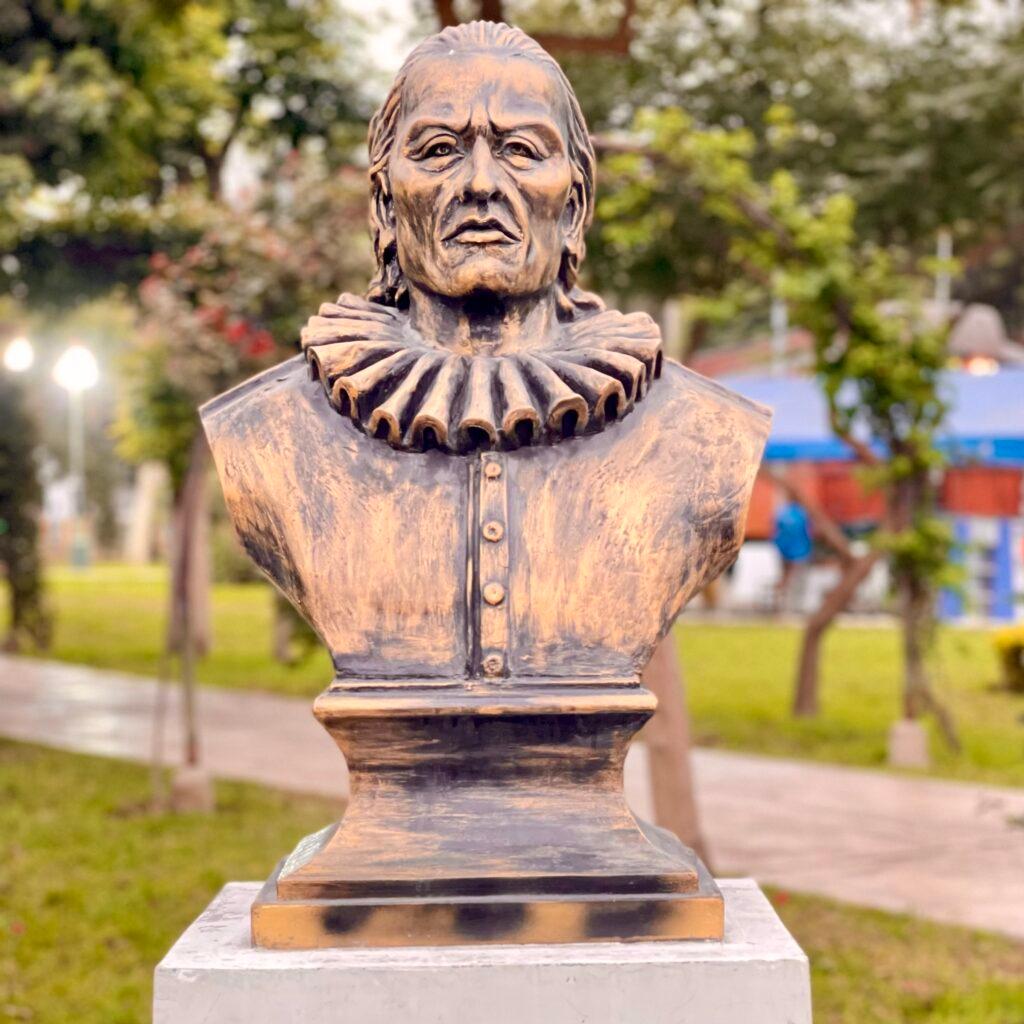
2. Andrés Hurtado de Mendoza y Cabrera
Andrés Hurtado de Mendoza, 3rd Marquis of Cañete, served as the Viceroy of Peru from 1556 to 1561. While his viceregal duties spanned the entire colony, historical records indicate his presence and residence within the area that is now Pueblo Libre.
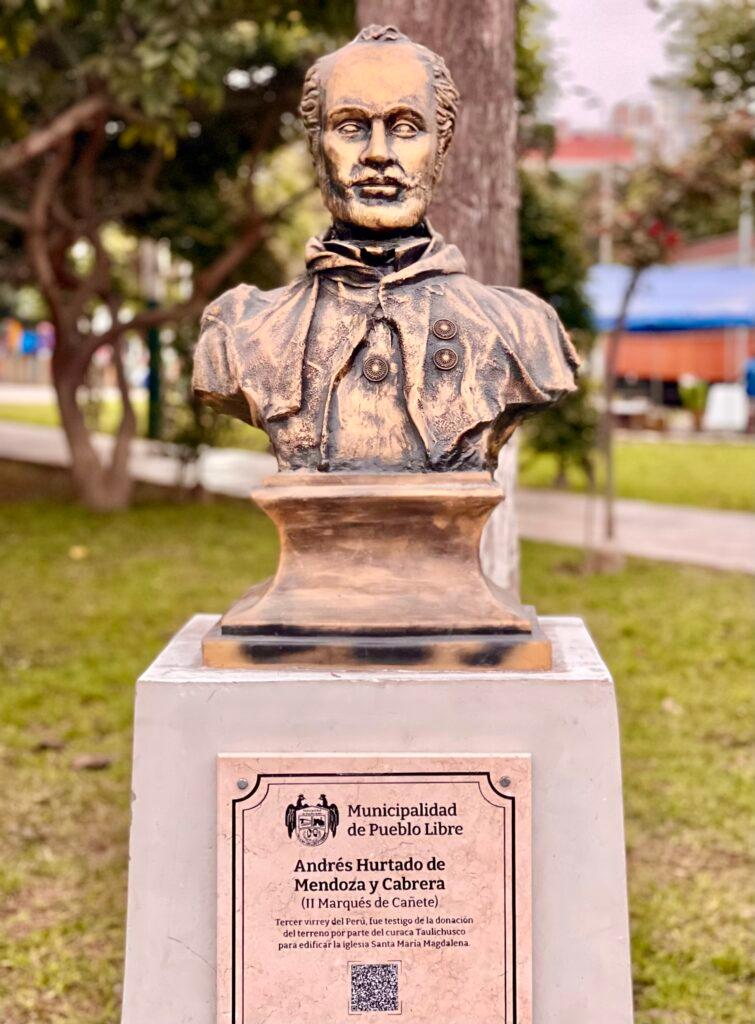
3. Don Isidro Cortazar y Abarca
Don Isidro Cortazar y Abarca was a prominent figure in colonial Lima. A wealthy landowner and influential member of society, his residence in the Magdalena Vieja area (the former name of Pueblo Libre) underscores the district’s historical importance even in the colonial era.
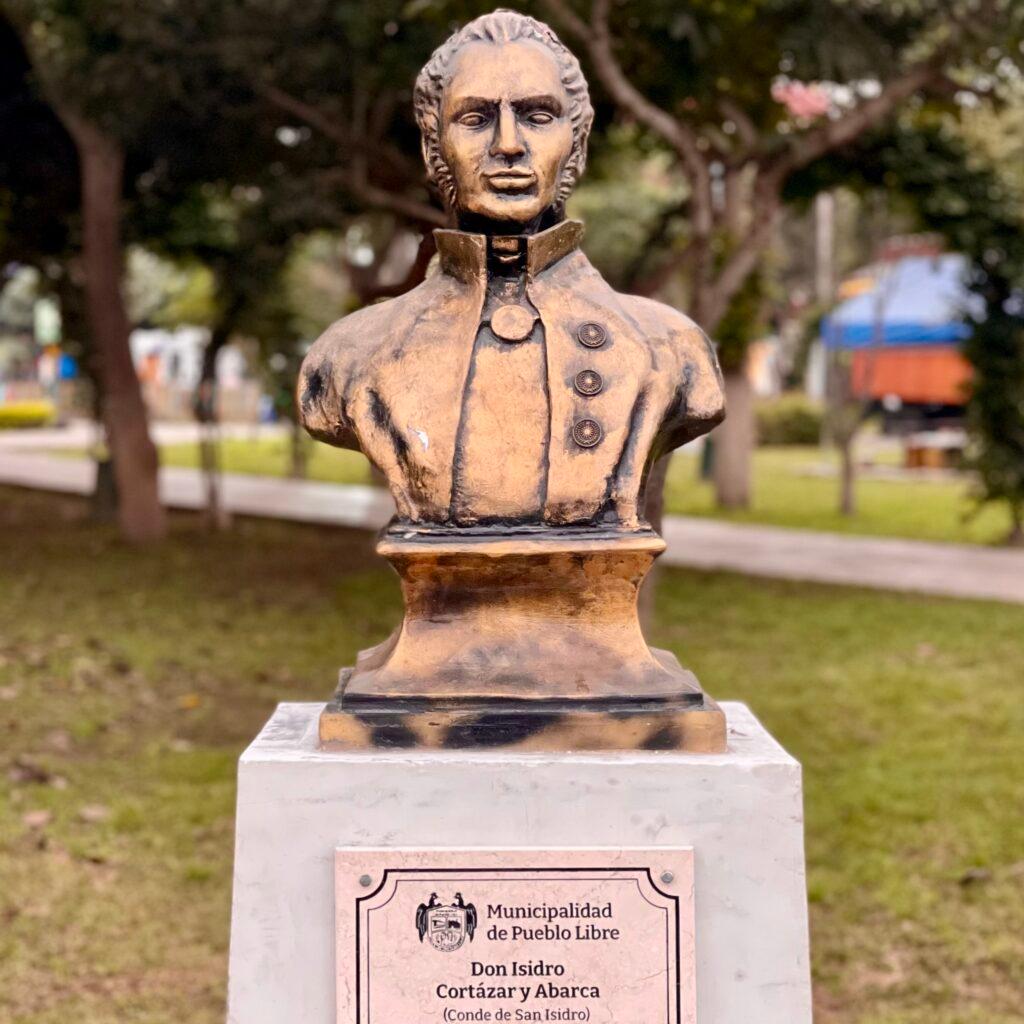
4. Joaquín de la Pezuela
Joaquín de la Pezuela, the second to last Viceroy of Peru before independence (though overthrown before San Martín’s arrival in Lima), famously owned the grand estate now known as the Quinta de los Libertadores in Pueblo Libre. This makes him a significant, albeit unwilling, part of the district’s liberation story.
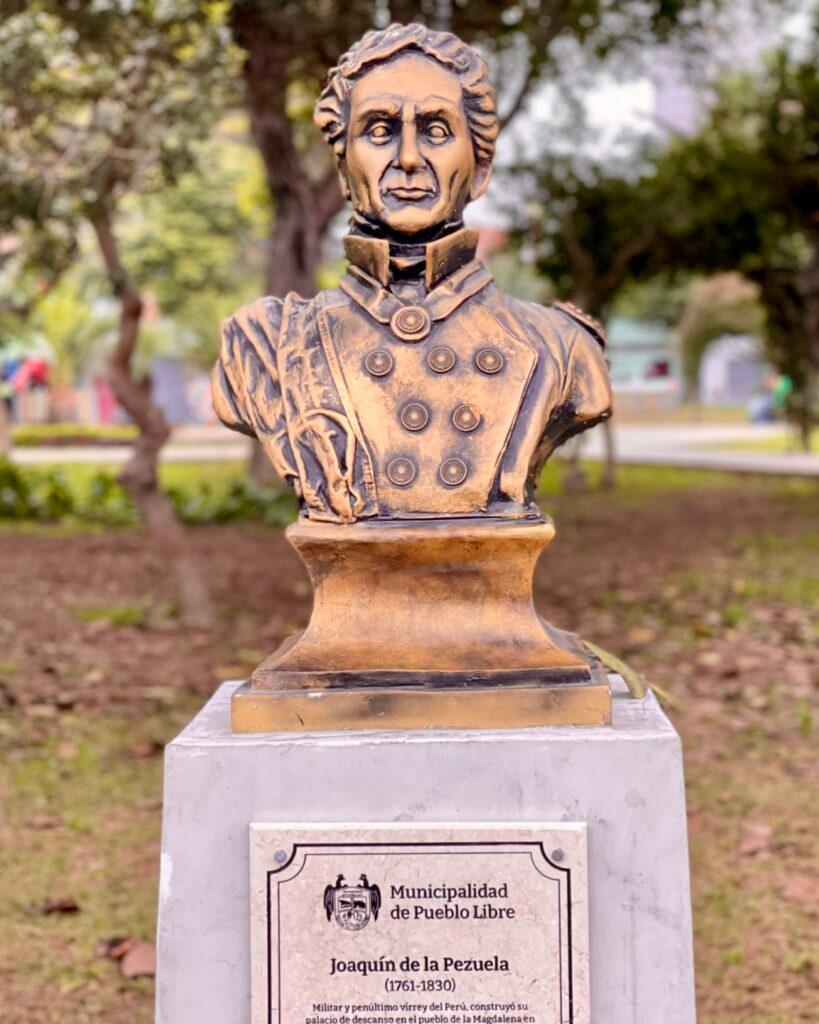
5. Libertador Don José de San Martín
José de San Martín, the Liberator of Argentina, Chile, and Peru, made Pueblo Libre the strategic heart of his campaign for Peruvian independence. His headquarters were established at the Quinta de los Libertadores, solidifying Pueblo Libre’s place in the annals of Peruvian history.
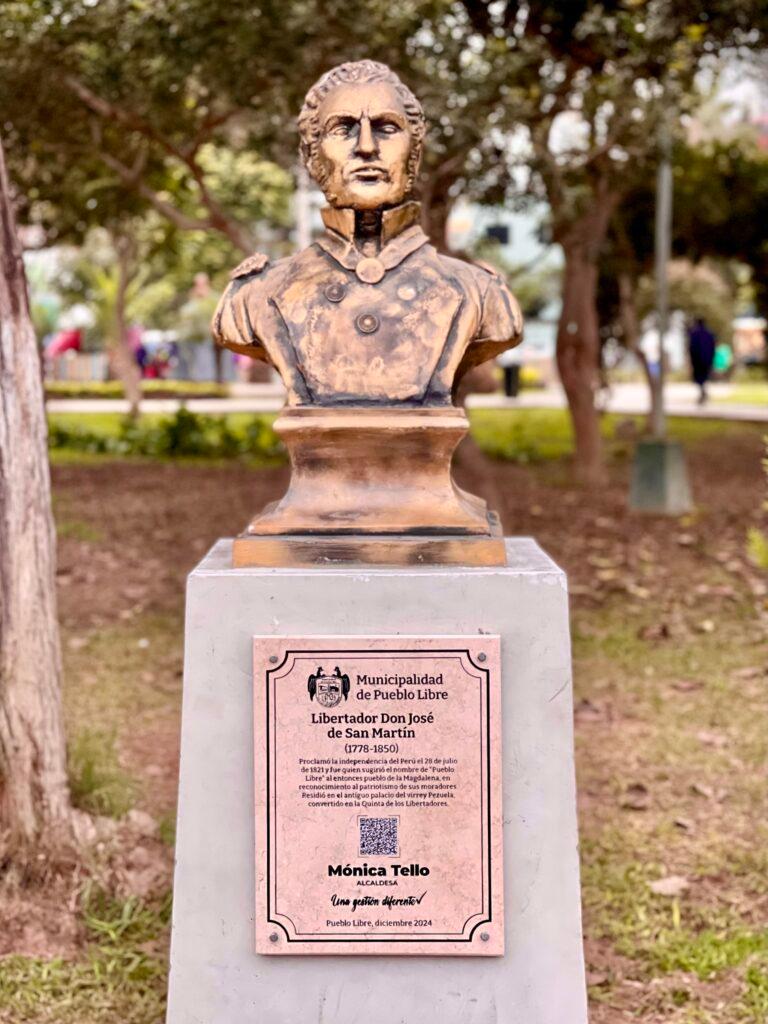
6. Libertador Simón Bolívar
Simón Bolívar, the Liberator of much of South America, also resided in Pueblo Libre during his crucial efforts to secure Peru’s independence. His presence alongside San Martín in Lima, albeit at different times, further cemented the district’s “Villa de los Libertadores” title.
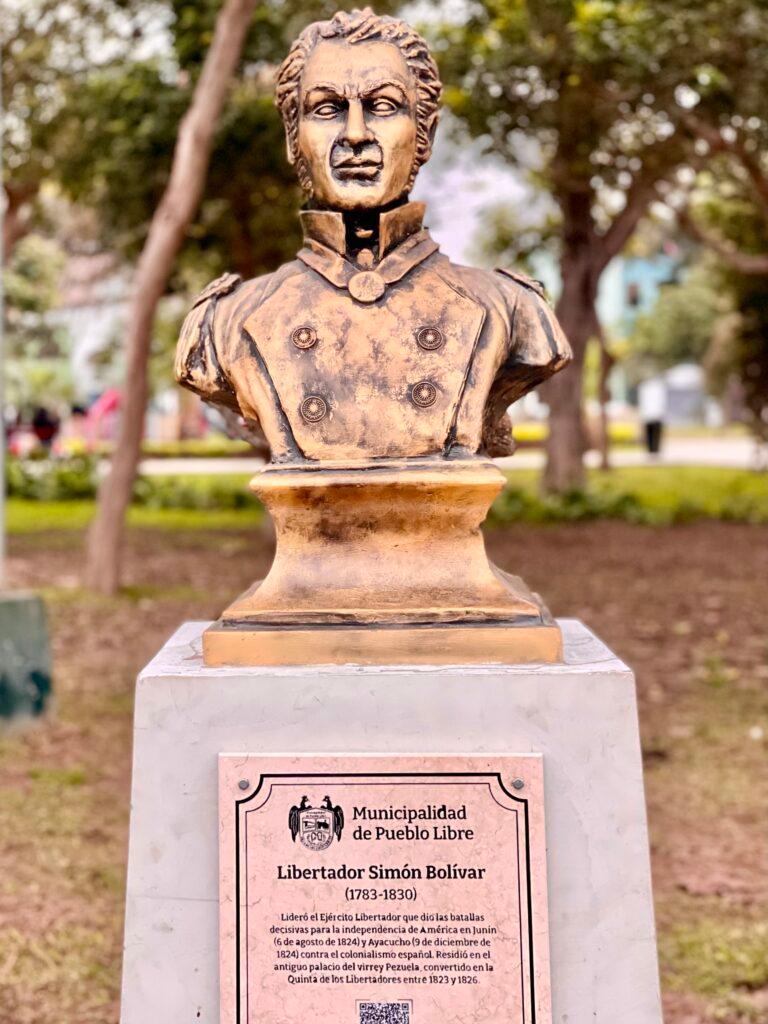
7. Gran Mariscal Antonio José de Sucre
Antonio José de Sucre, a key military leader under Simón Bolívar, played a pivotal role in the Battle of Ayacucho, which secured South American independence. He was the Grand Marshal of Ayacucho and the first President of Bolivia.
His connection to Pueblo Libre stems from his close association with Bolívar during the Peruvian campaigns. And he lived in Pueblo Libre from 1823 to 1825.
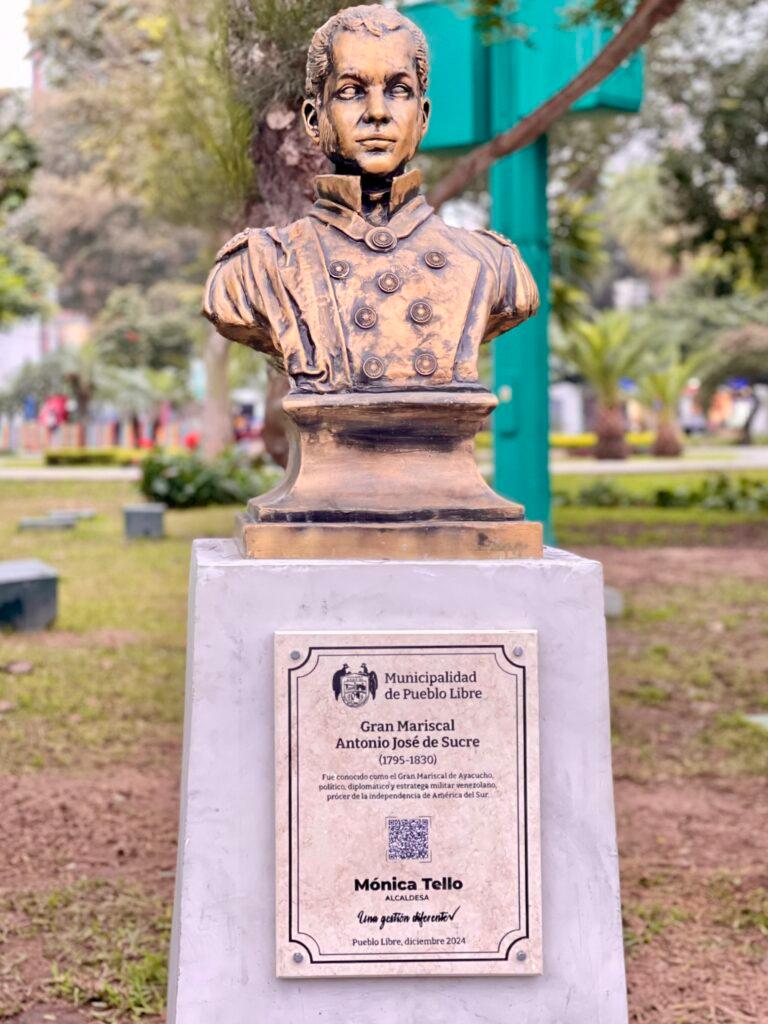
8. Gran Mariscal José Domingo de La Mar y Cortázar
José Domingo de La Mar y Cortázar was a prominent figure in the early years of the Peruvian Republic, serving as President on multiple occasions. His residence in Pueblo Libre highlights the district’s continued importance in the nascent nation.
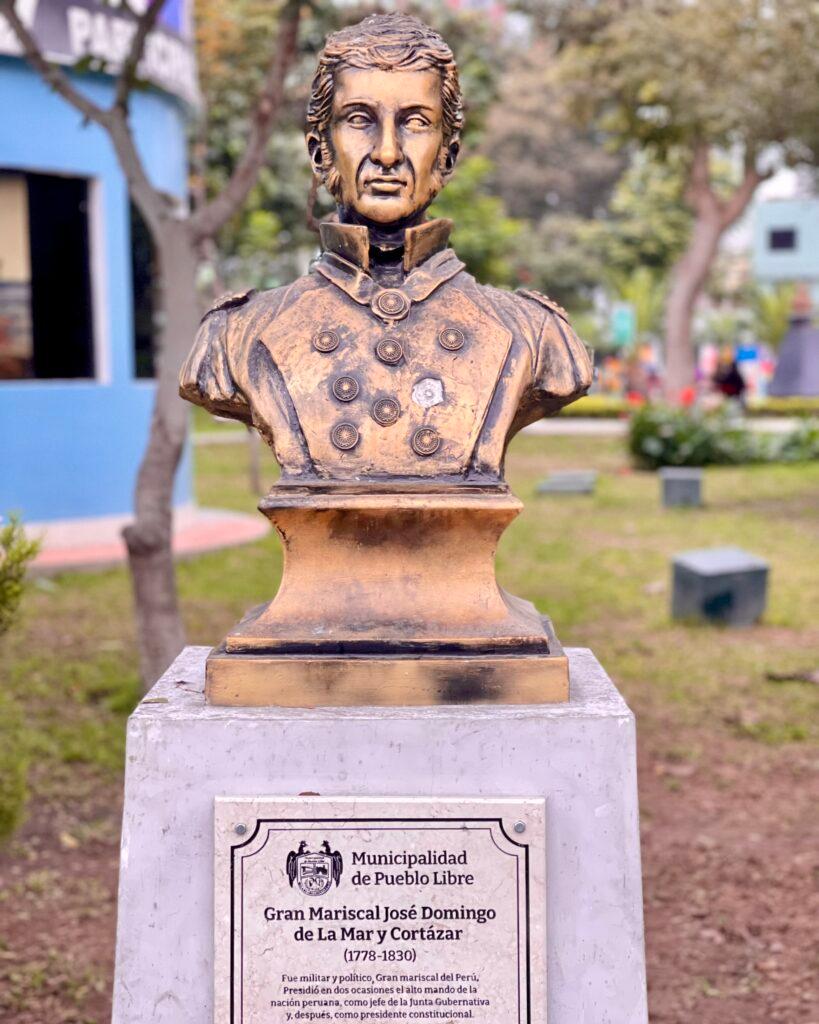
9. Manuel Gaspar Villarán Loli
Manuel Gaspar Villarán Loli was a distinguished Peruvian lawyer, politician, and intellectual in the late 19th and early 20th centuries. His residence in Pueblo Libre reflects the district’s attraction for prominent thinkers of the era.
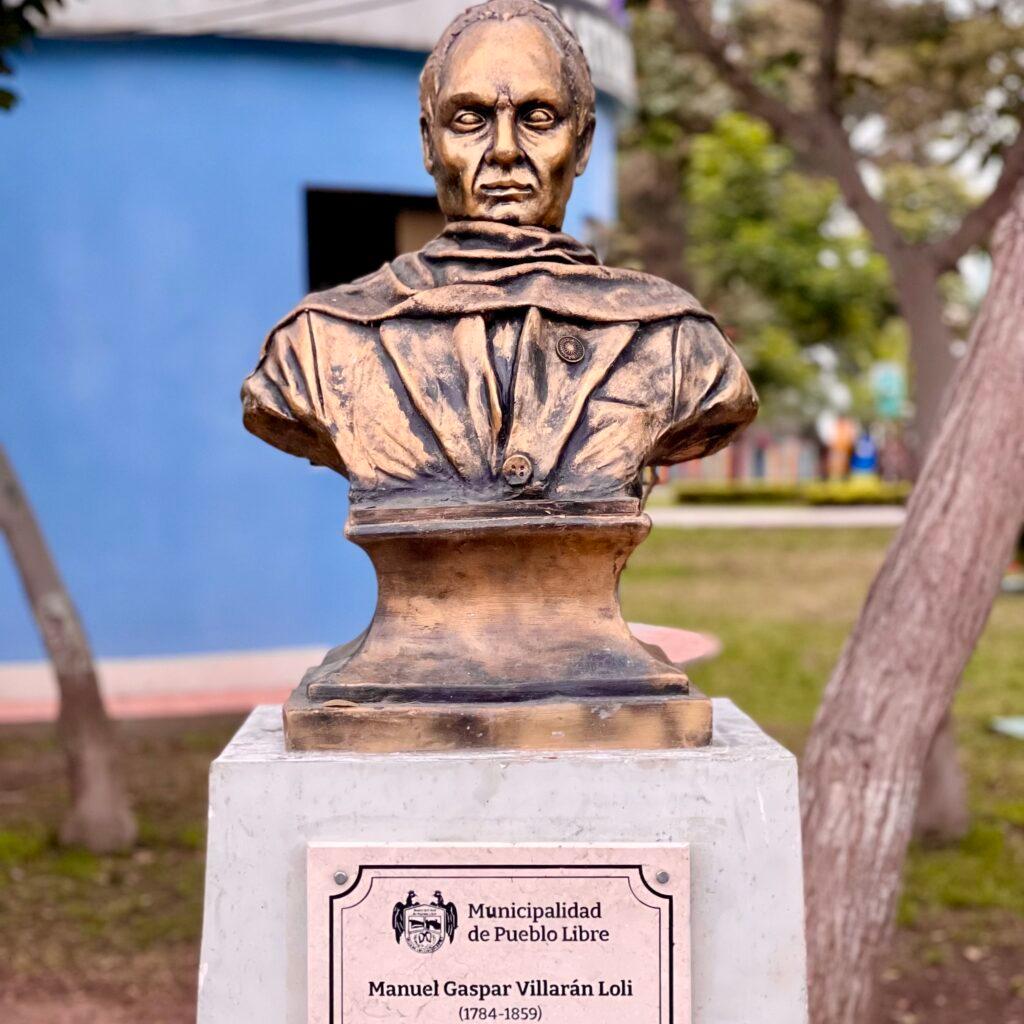
10. Manuelita Saenz “La Libertadora del Libertador”
Manuela Sáenz, the courageous and influential partner of Simón Bolívar, played a vital role in the independence movement. She was awarded the Order of the Sun by San Martin and she was loved by Bolivar.
Her residence in Pueblo Libre, just steps from the Quinta, positioned her at the center of revolutionary activities. Her story is a key part of understanding the famous people in Peruvian history.
Travel Tip: In Plaza Bolivar you’ll notice that Manuela Sáenz former home is at one end of the Plaza. And at the other is a bronze bust of ‘El Genio’ (Simon Bolivar), forever looking back over his shoulder, towards the place where she lived.
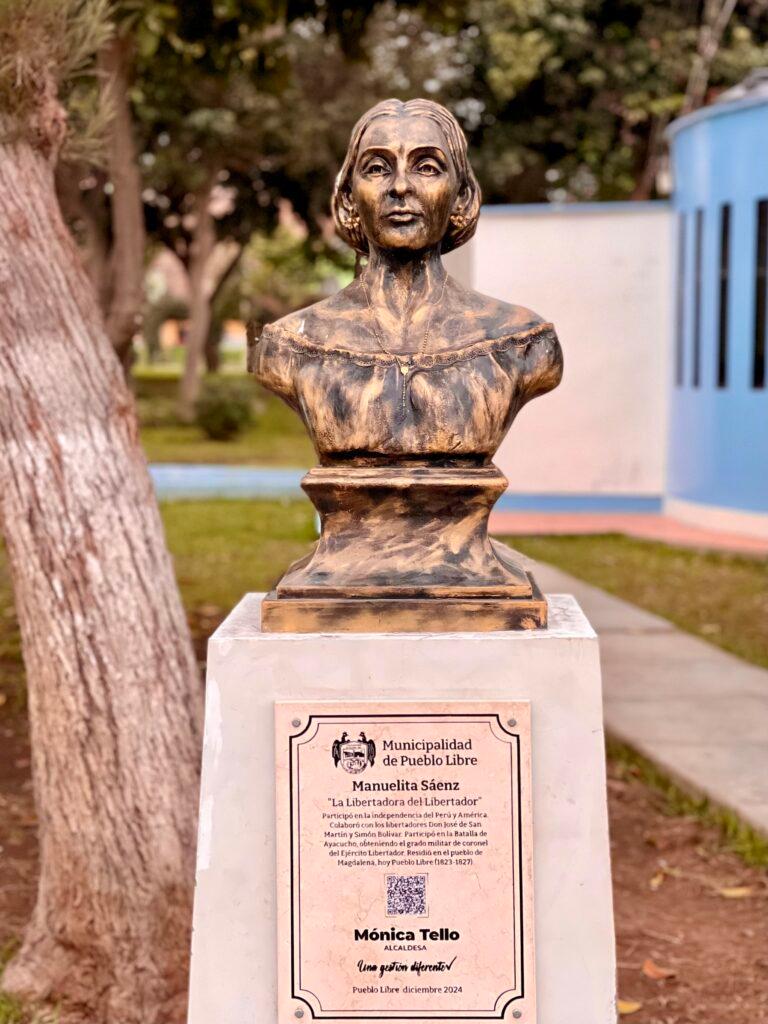
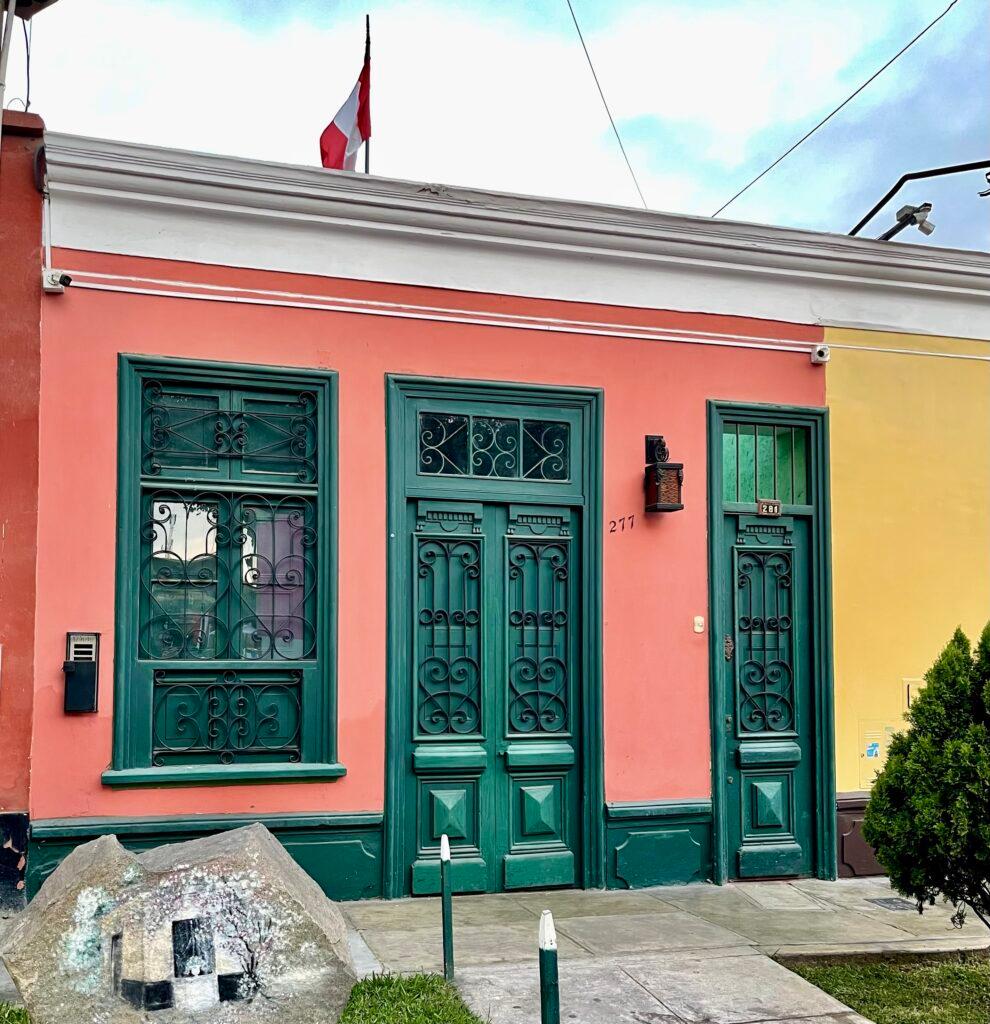
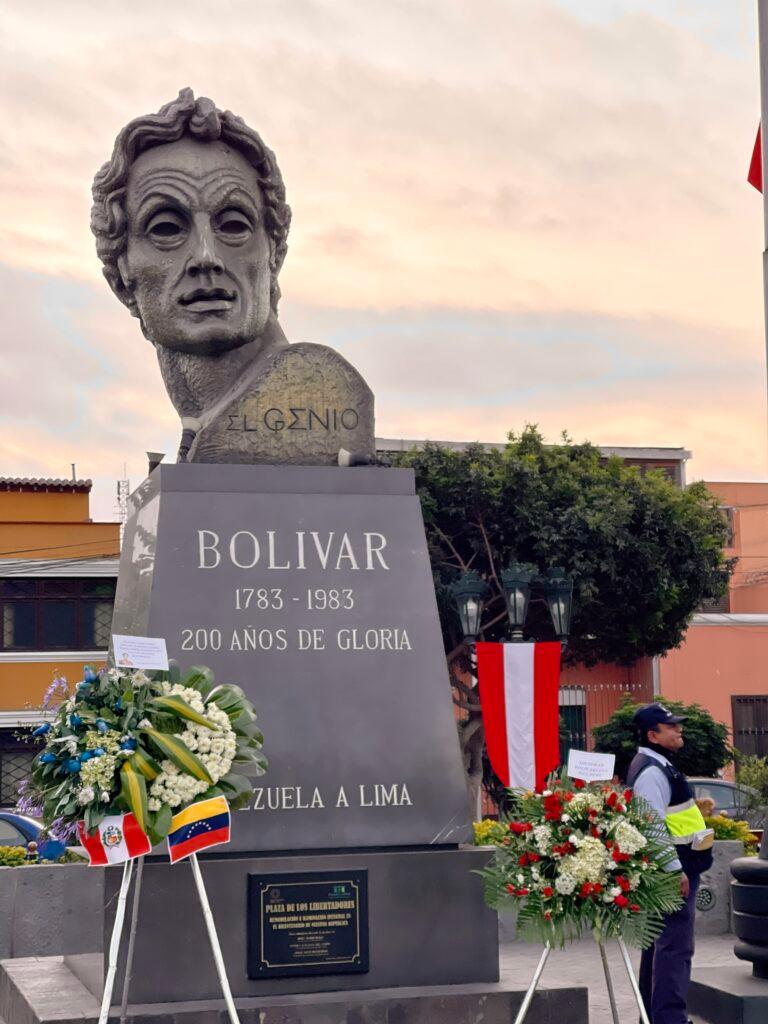
11. Gran Mariscal José Andrés de Santa Cruz
José Andrés de Santa Cruz served as President of Peru and later as the Supreme Protector of the Peru-Bolivian Confederation. His residence in Pueblo Libre underscores the district’s continued association with national leadership.
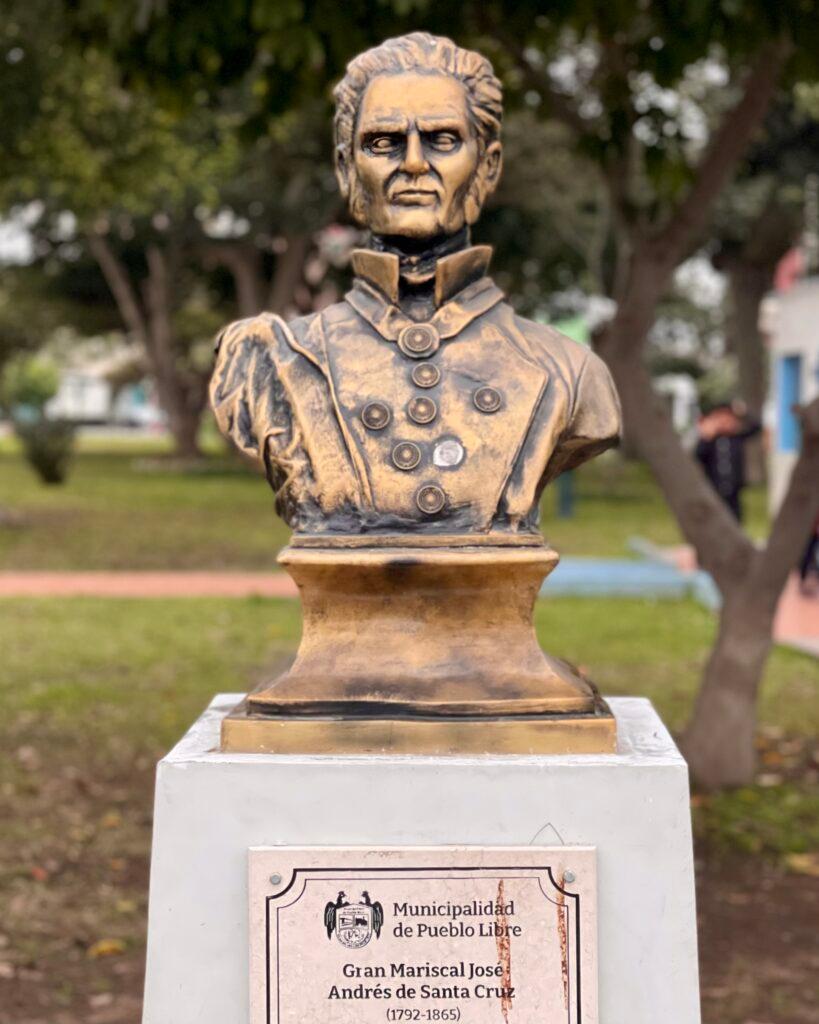
12. General José María Córdova Muñoz
General José María Córdova Muñoz was a celebrated Colombian general who fought alongside Bolívar in numerous key battles for South American independence. His connection to Pueblo Libre stems from his involvement in the Peruvian campaigns.
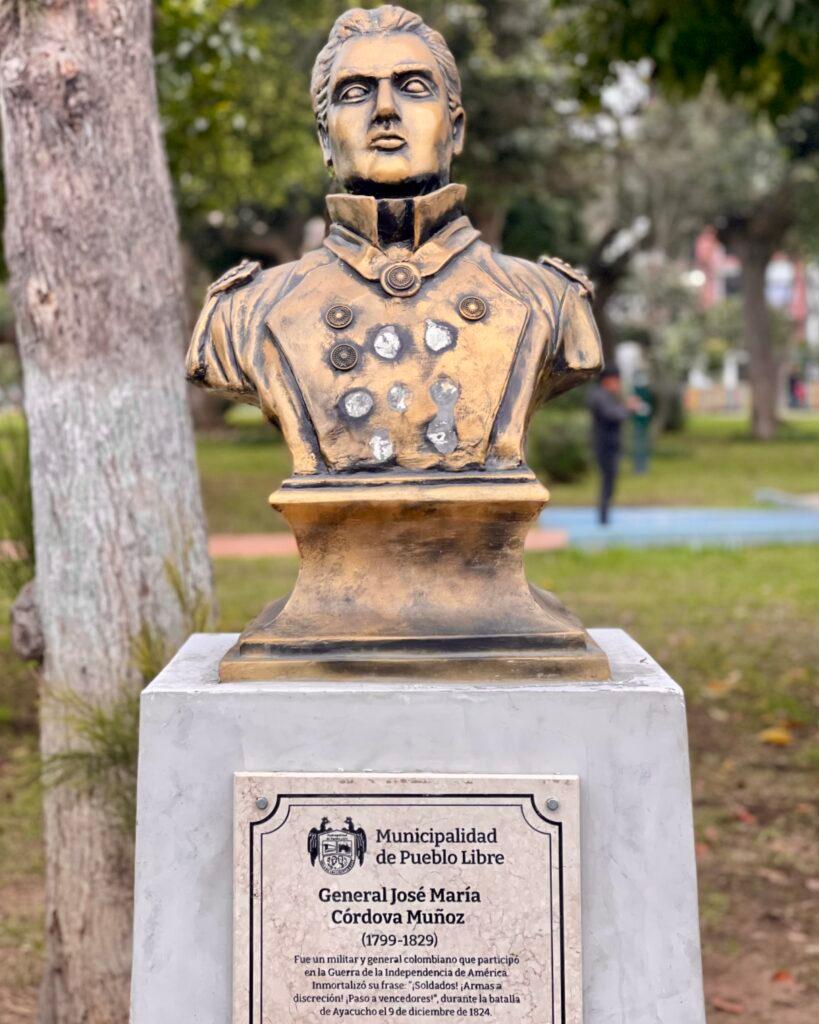
13. Dr. Pedro Alejandrino Del Solar Gabas
Dr. Pedro Alejandrino Del Solar Gabas was a respected Peruvian physician and politician in the late 19th and early 20th centuries. His residence in Pueblo Libre highlights the district’s appeal to professionals and intellectuals.
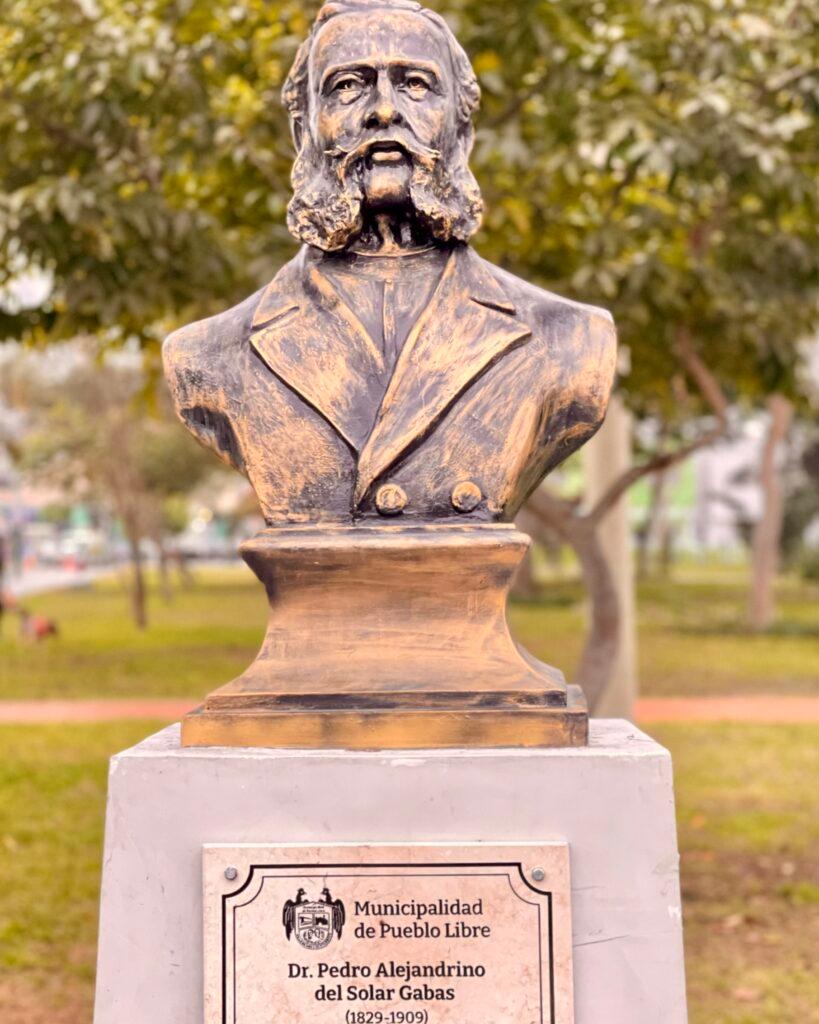
14. Francisco García Calderón Landa
Francisco García Calderón Landa was a distinguished Peruvian lawyer, academic, and brief interim President during the War of the Pacific. His residence in Pueblo Libre reflects the district’s history as a home for influential figures in Peruvian society.
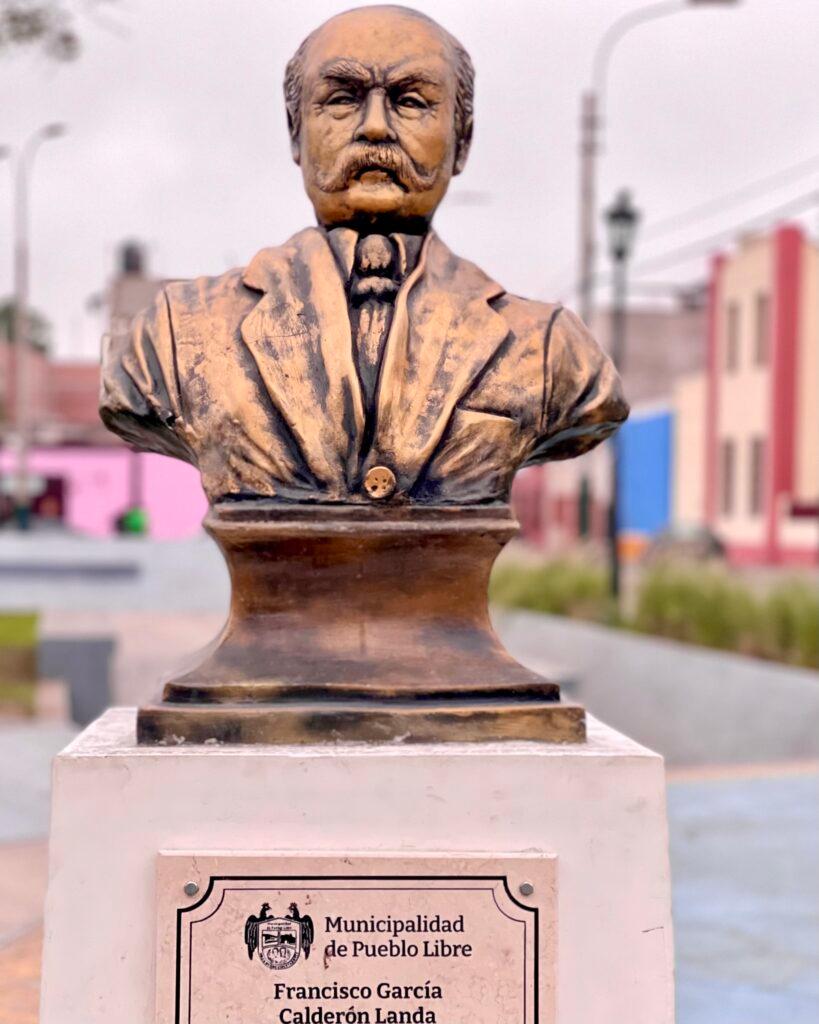
15. Reynaldo de Vivanco y de la Torre
Reynaldo de Vivanco y de la Torre was a prominent Peruvian intellectual, writer, and diplomat in the early 20th century. His choice of Pueblo Libre as his residence underscores the district’s cultural significance.
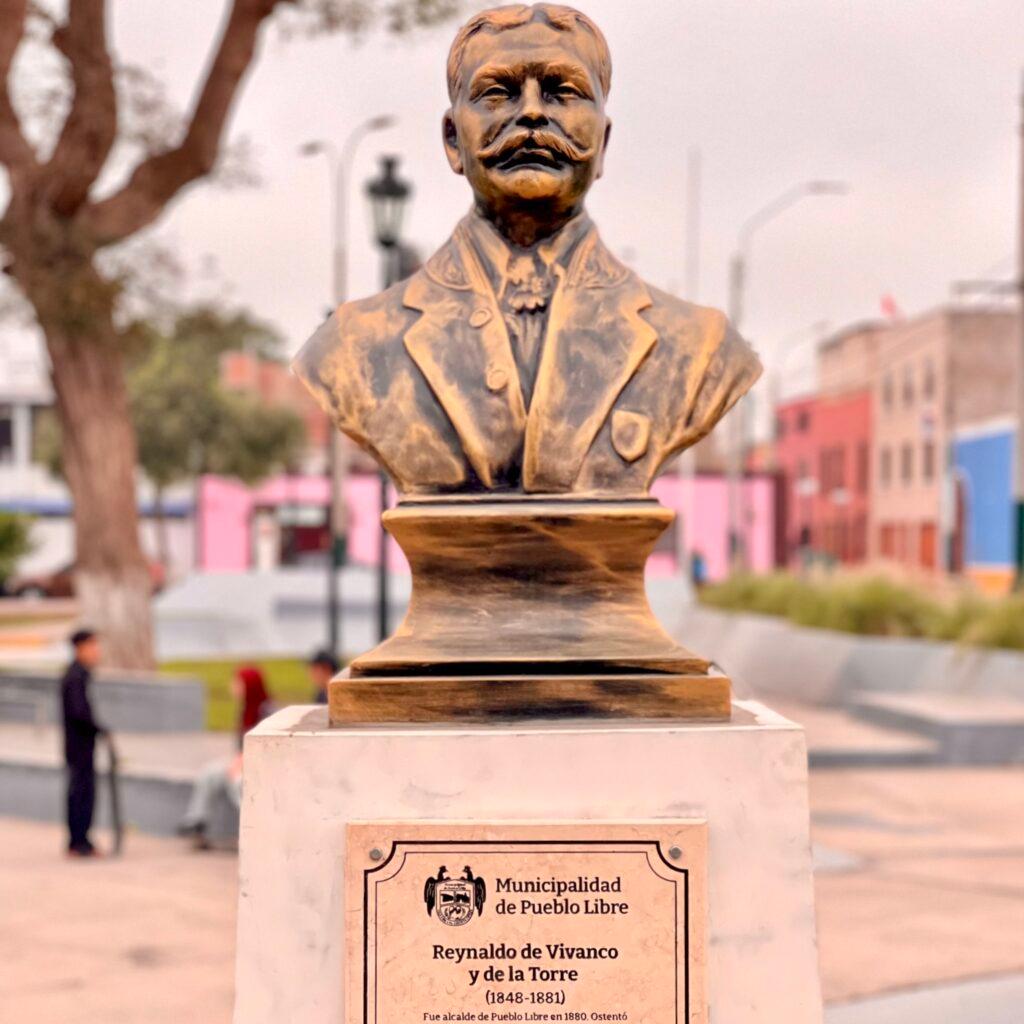
16. El General de Brigada Paul Josep Emile Clément Favre
General Paul Josep Emile Clément Favre was a French military advisor who played a role in the modernization of the Peruvian army in the early 20th century. His residence in Pueblo Libre indicates the district’s international connections.
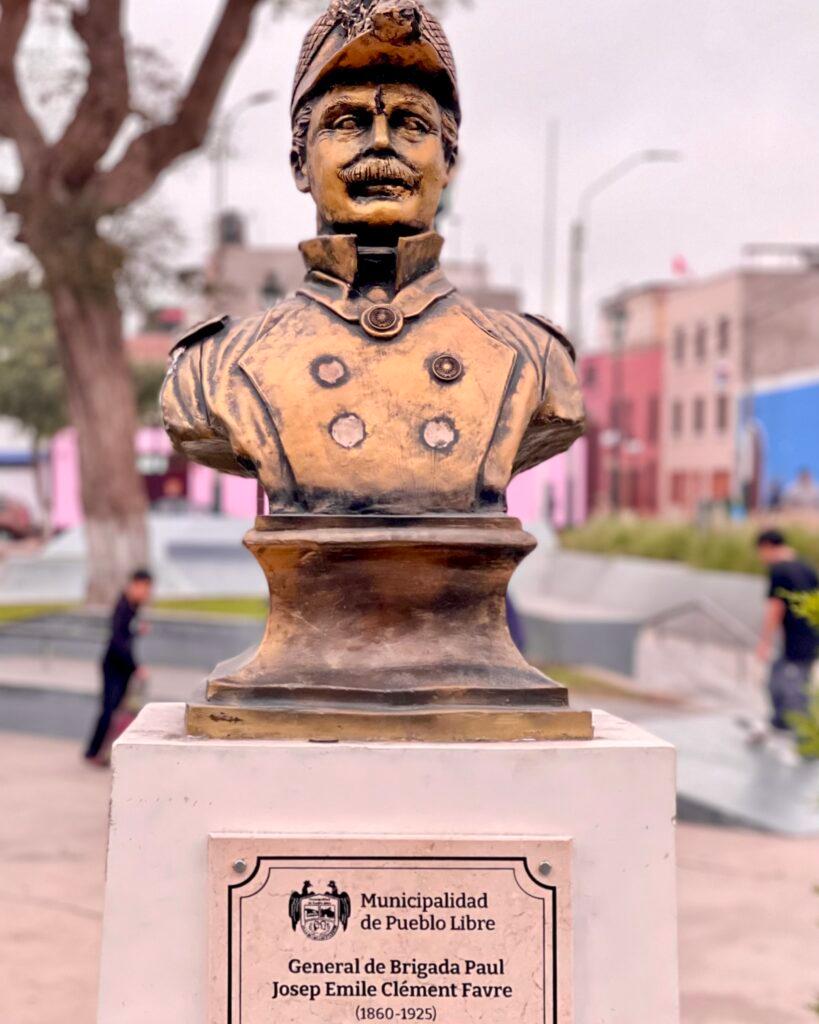
17. Germán Luna Iglesias
Germán Luna Iglesias was a notable Peruvian architect and urban planner in the mid-20th century. His residence in Pueblo Libre speaks to the district’s appeal to creative and innovative minds.
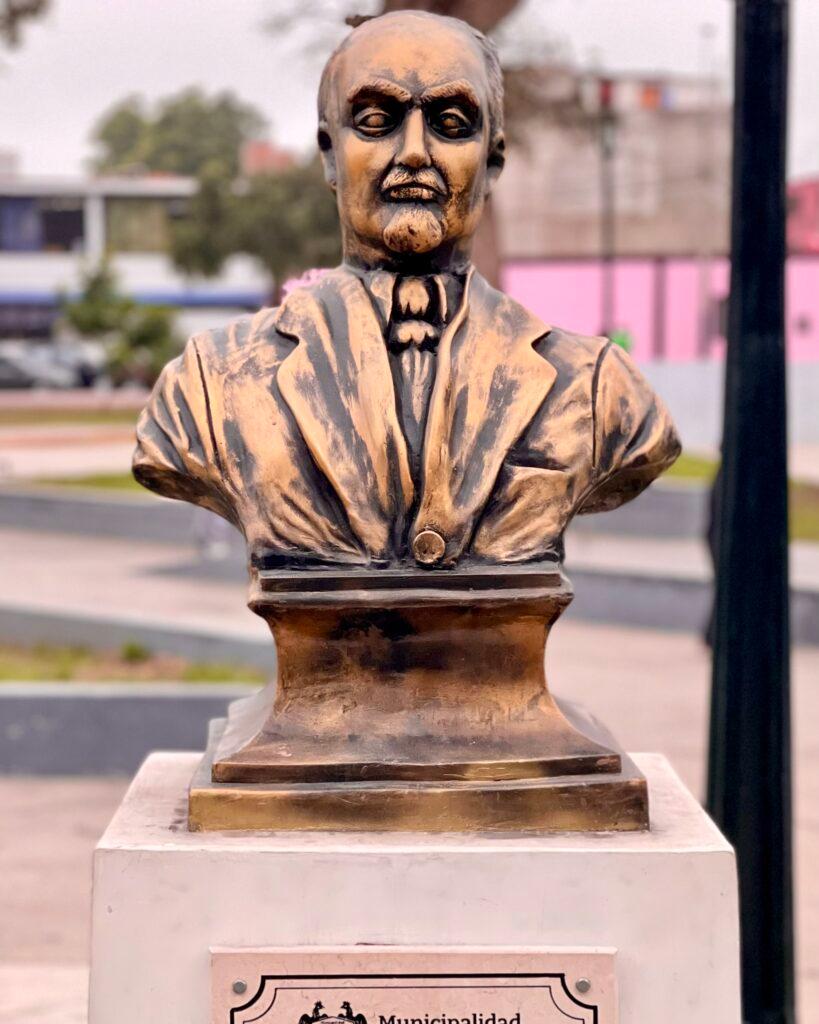
18. Julio César Tello Rojas
Julio César Tello Rojas is considered the “father of Peruvian archaeology.” His groundbreaking research and establishment of national archaeological institutions mark him as one of the most famous people in Peruvian history.
His residence in Pueblo Libre connects this vital field to the district. And Pueblo Libre is home to the Huaca Julio C. Tello, a protected Peruvian Cultural Heritage site.
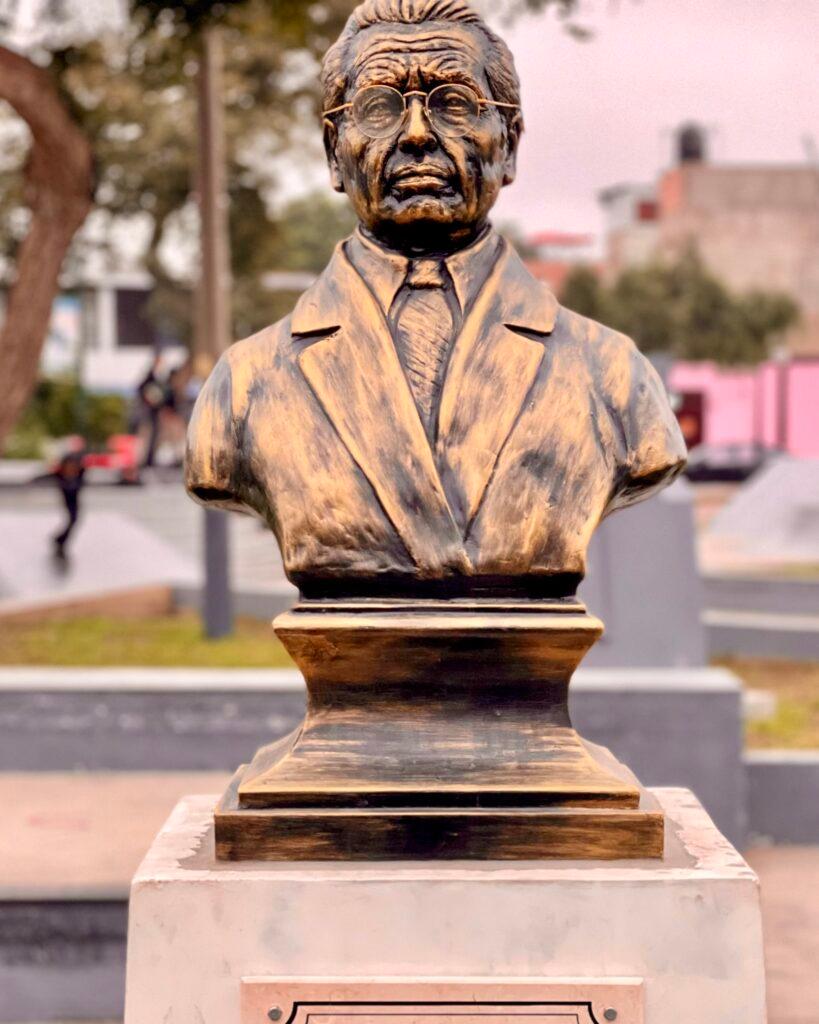
19. Julia Manuela Codesido Estenós
Julia Manuela Codesido Estenós was a significant Peruvian painter of the 20th century, known for her indigenist themes. Her residence in Pueblo Libre highlights the district’s appeal to prominent artists.
Travel Tip: The former residence of Julia Manuela Codesido Estenós in Pueblo Libre is now a private museum. It’s not always open and it requires booking in advance if you want to see it.
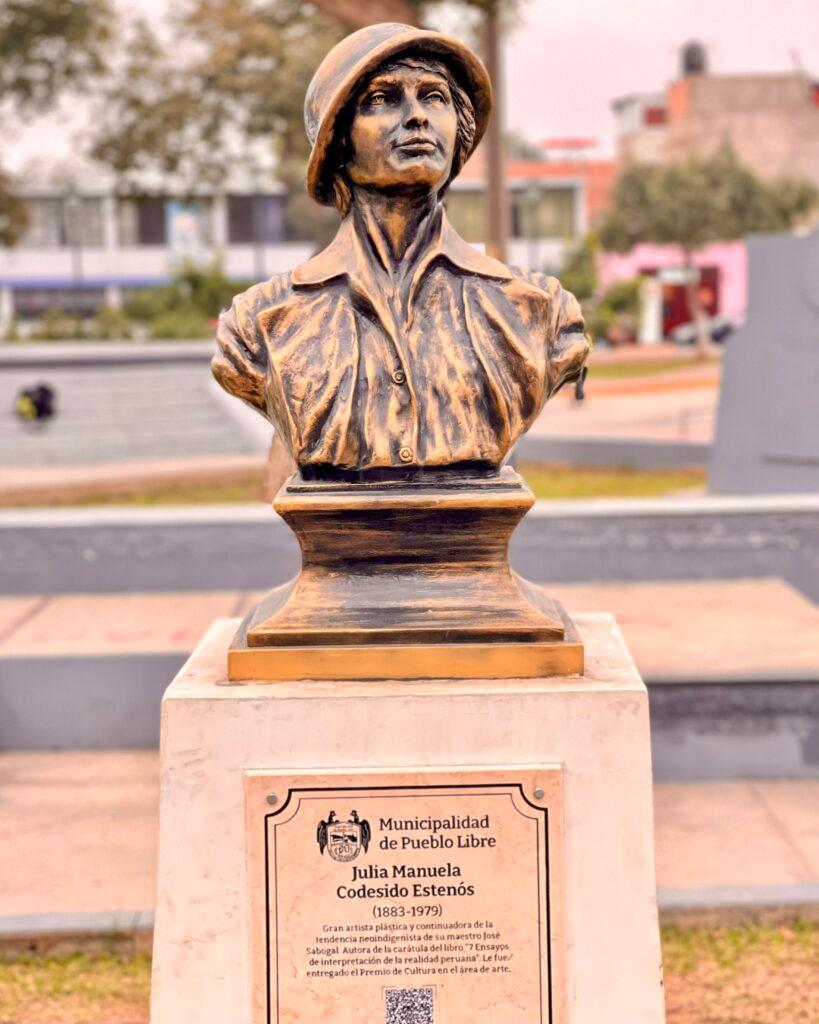
20. Victorio Macho Rogado
Victorio Macho Rogado was a renowned Spanish sculptor who spent a significant period of his life in Peru. His residence and artistic endeavors in Pueblo Libre added an international dimension to the district’s cultural landscape.
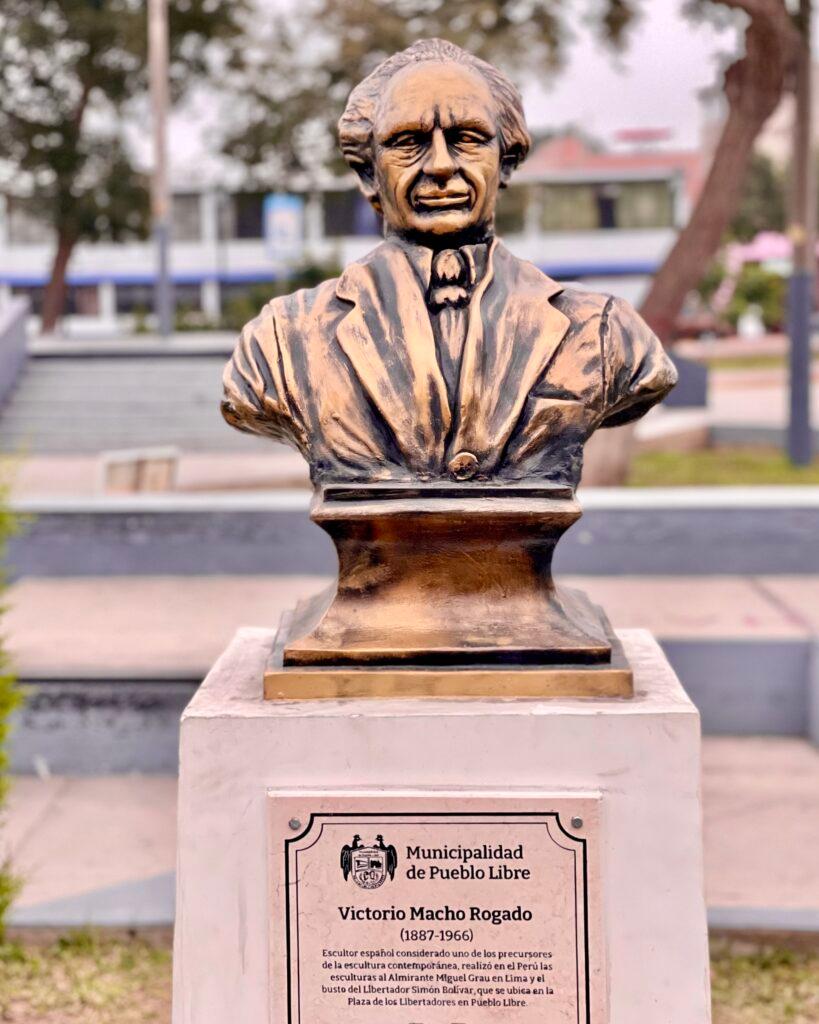
21. Arnaldo Luis Erasmo Panizo Vargas
Arnaldo Luis Erasmo Panizo Vargas was a respected Peruvian composer and musician in the 20th century. His residence in Pueblo Libre underscores the district’s attraction for creative individuals in the arts.
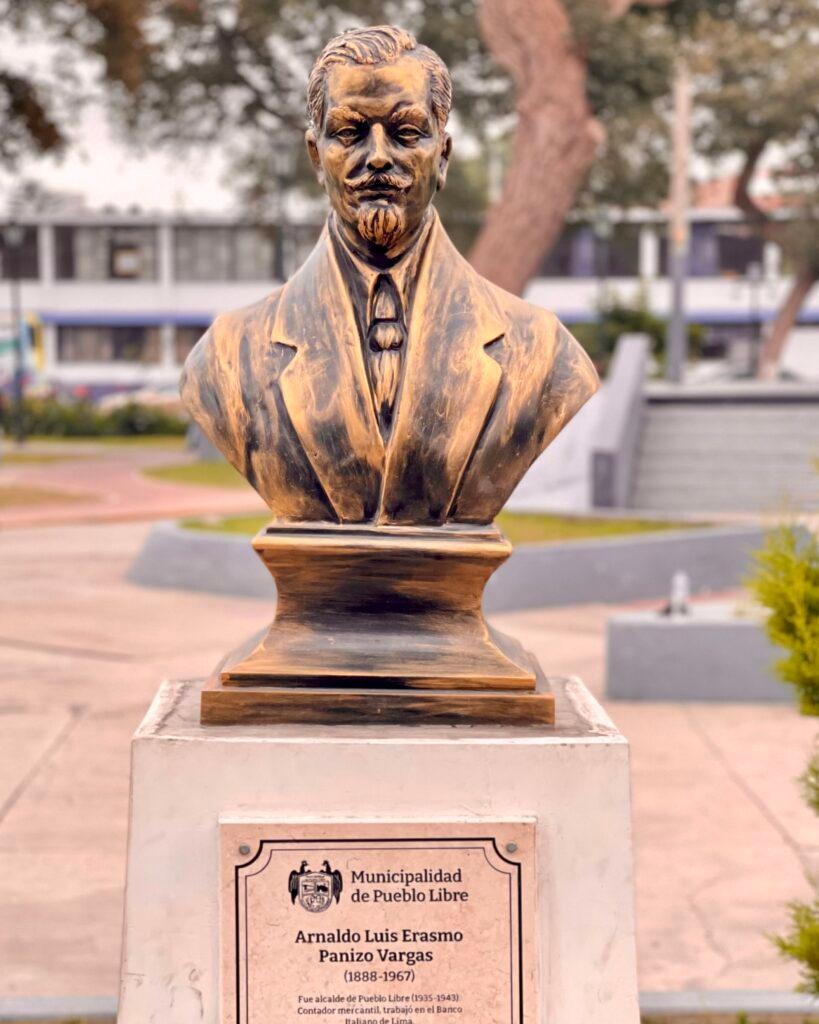
22. Francisco González Gamarra
Francisco González Gamarra was a prominent Peruvian painter in the early 20th century, known for his costumbrista scenes. His residence in Pueblo Libre further solidifies the district’s artistic heritage.
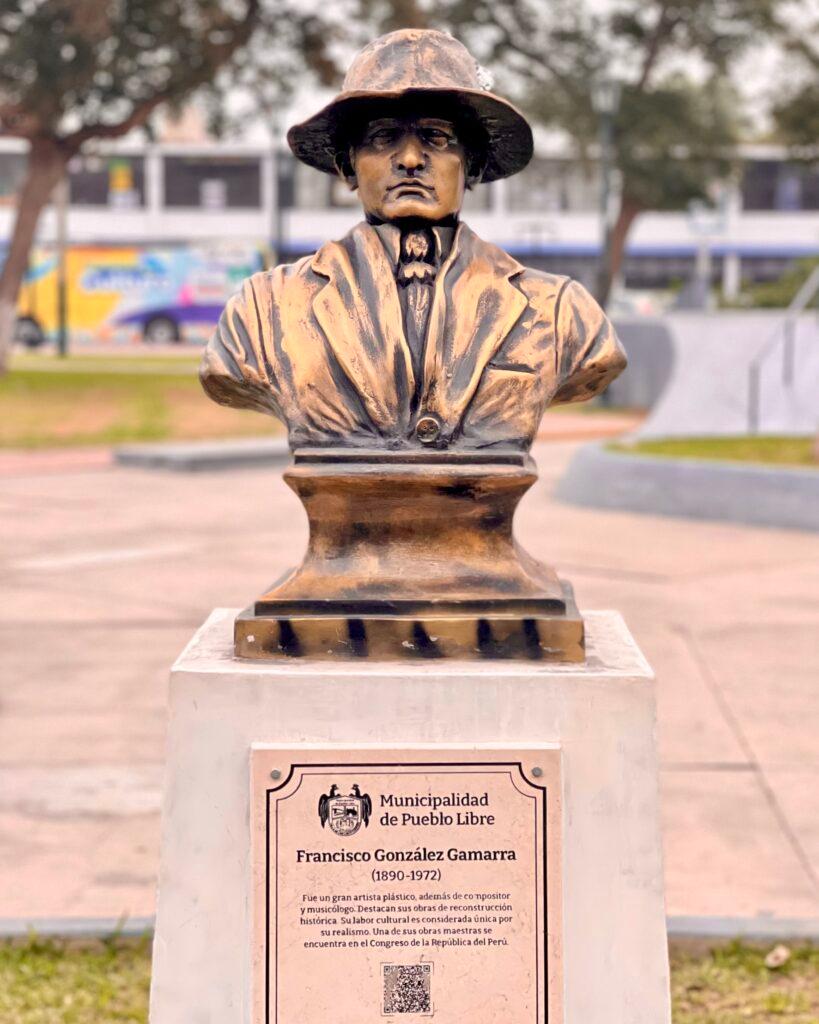
23. Rafael Larco Hoyle
Rafael Larco Hoyle was a pioneering Peruvian archaeologist and the founder of the renowned Museo Larco in Pueblo Libre. His work revolutionized the understanding of pre-Columbian Peruvian cultures, making him one of the most famous people in the history of Peru.
The Larco museum itself is a major draw for those interested in historical places in Lima. And it’s currently rated as one of the best museums in Latin America and is considered one the world’s top 25 museums.
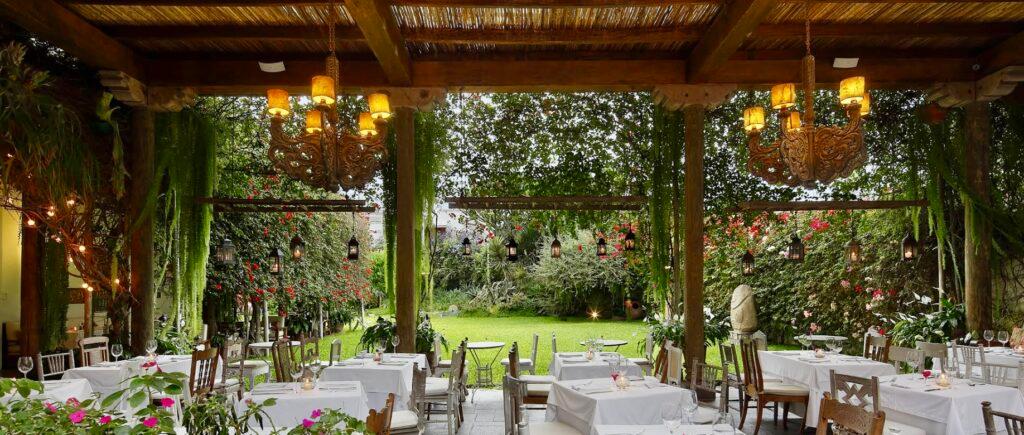
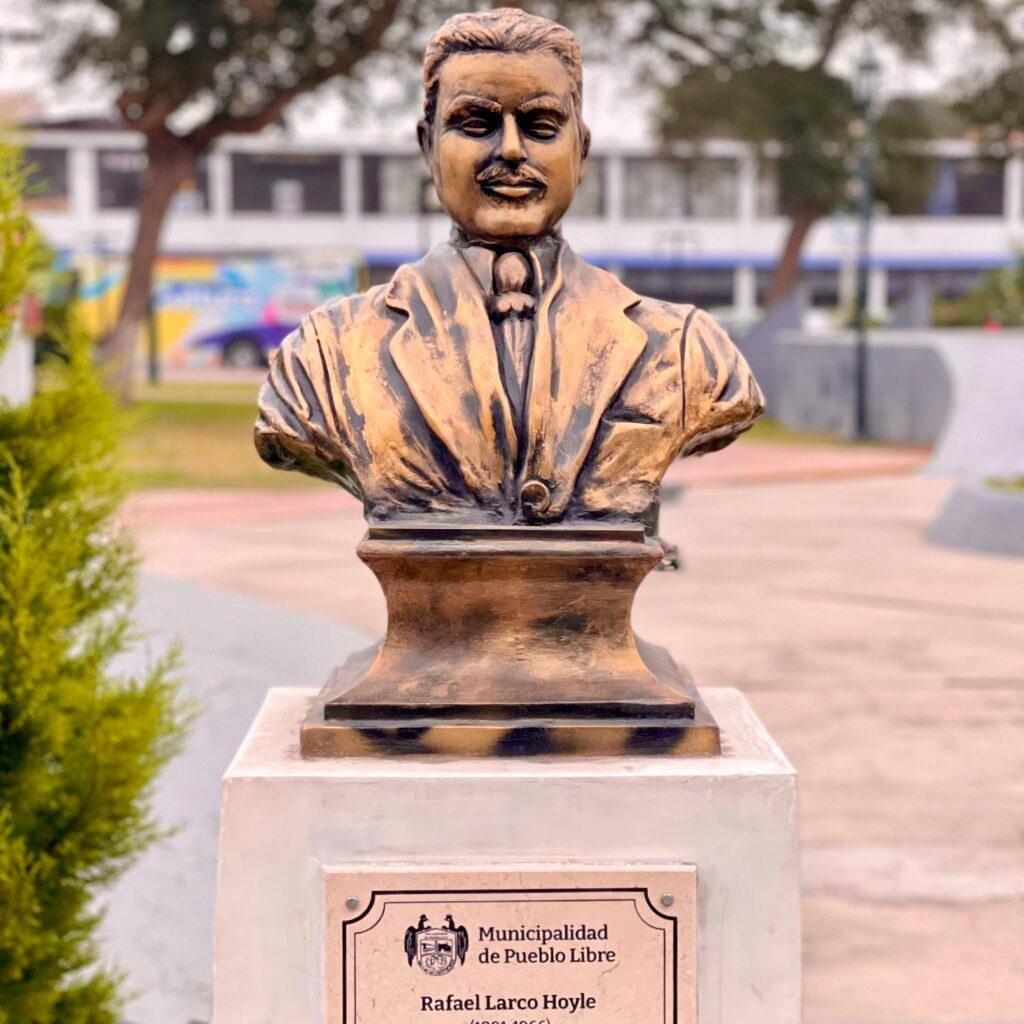
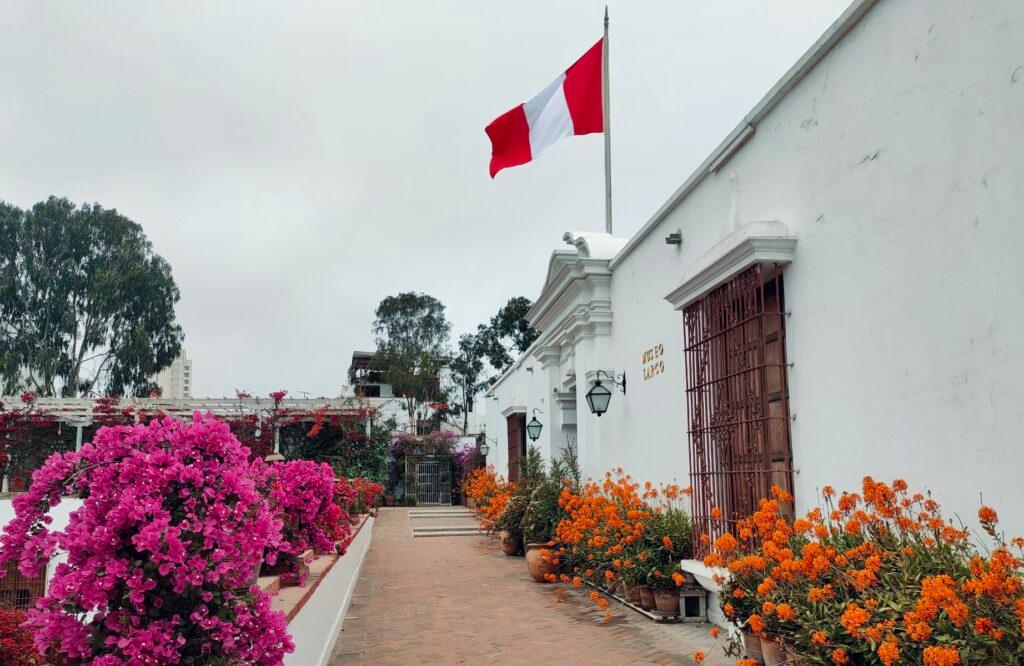
24. Mario Alberto Florián Díaz
Mario Alberto Florián Díaz was a respected Peruvian writer and journalist in the mid-20th century. His residence in Pueblo Libre reflects the district’s continued appeal to literary figures.
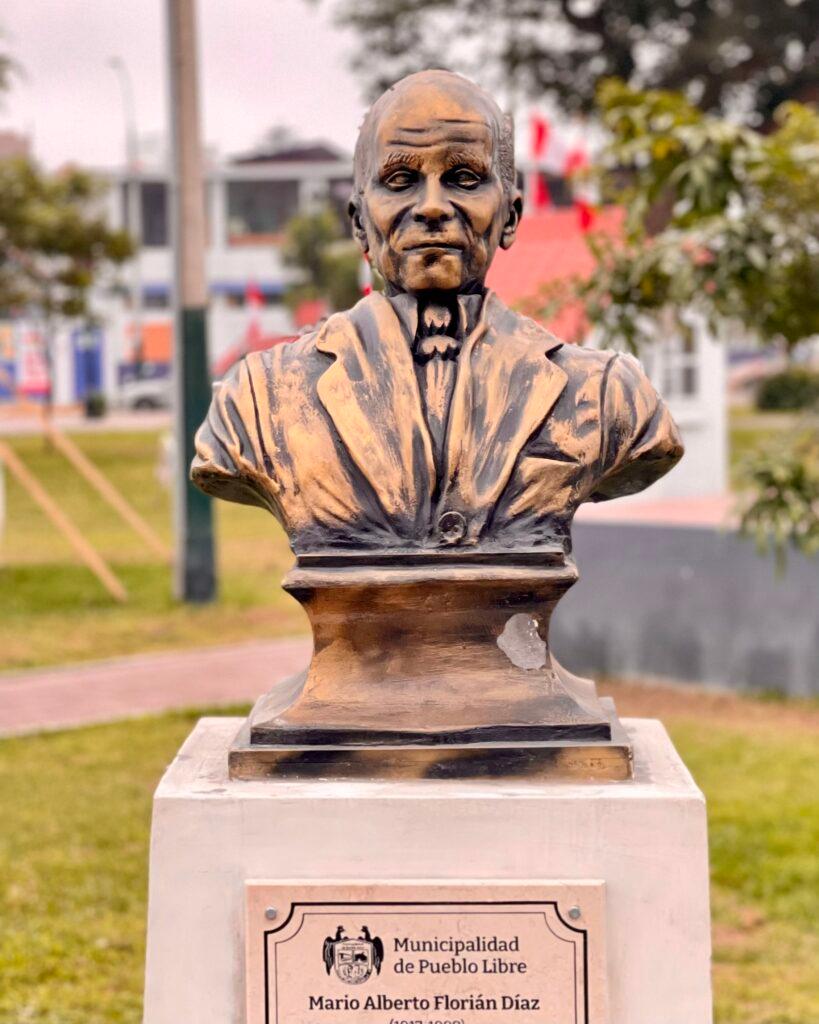
25. José Agustín de la Puente Candamo
José Agustín de la Puente Candamo was a distinguished Peruvian historian and academic in the 20th century. His residence in Pueblo Libre underscores the district’s enduring connection to historical scholarship.
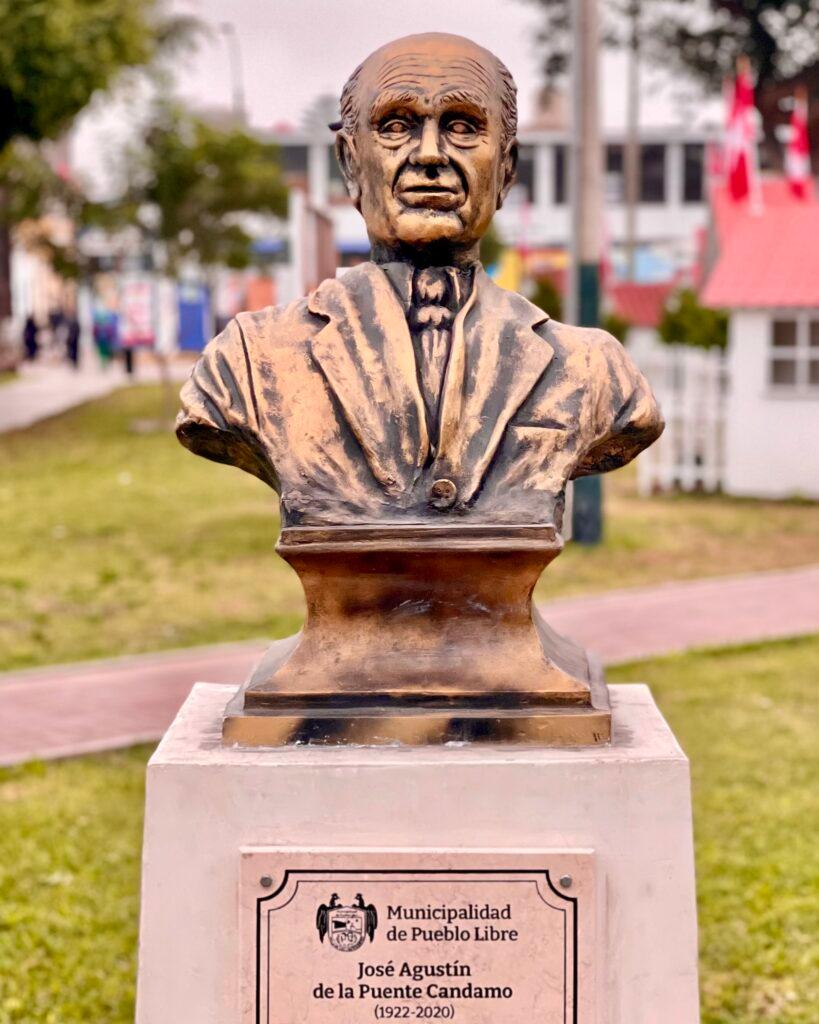
26. Josefina Ramos de Cox
Josefina Ramos de Cox was a prominent Peruvian educator and feminist in the 20th century. Her residence in Pueblo Libre highlights the district’s history as a home for influential figures in social reform and education.
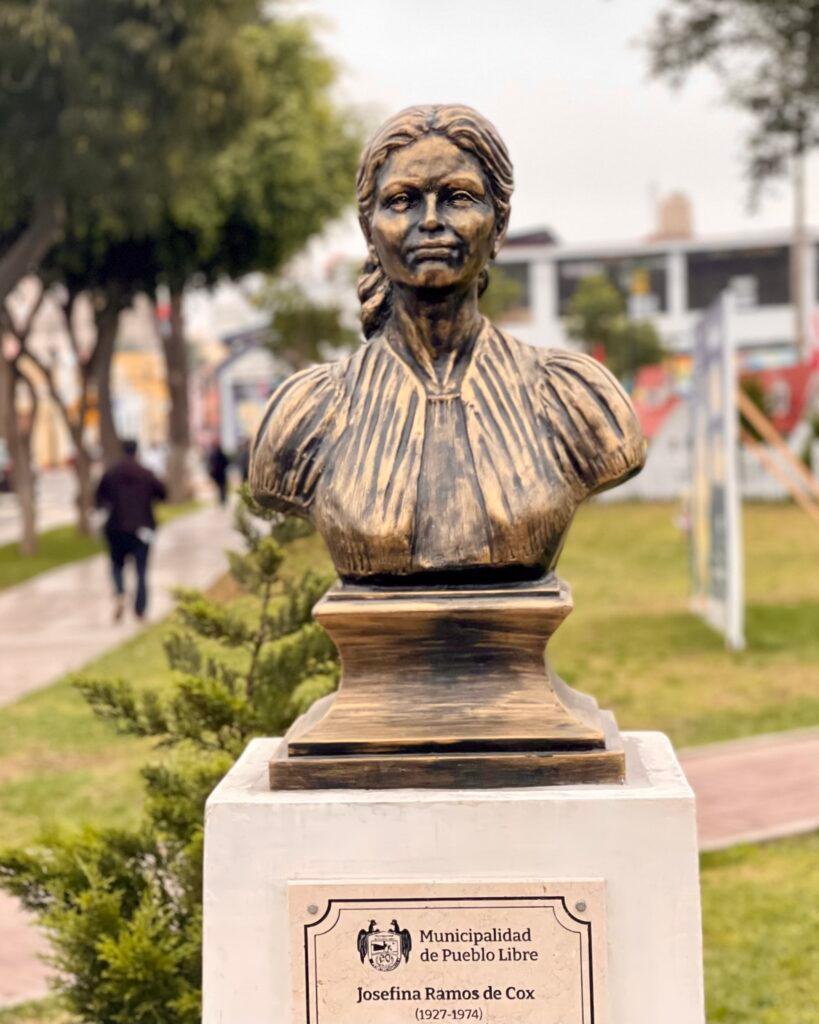
Historic Walks in Pueblo Libre, Lima
Exploring the Paseo de los Vecinos Ilustres and learning about these famous former residents of Pueblo Libre offers a unique and enriching perspective on one of the most significant historical places in Lima.
It underscores why Pueblo Libre truly deserves its title as the “Villa de los Libertadores” and why it remains a vital destination for anyone seeking to connect with the rich tapestry of Peruvian history. This walk through the lives of Pueblo Libre’s distinguished inhabitants is undoubtedly one of the more compelling things to do in Pueblo Libre for visitors with a deep interest in history.
Pueblo Libre district’s historic walks—from the patriotic tributes on the Boulevard de las Patricias to the vibrant musical heritage of the Boulevard del Criollismo—add further depth to this journey. These, along with the many other monuments scattered throughout the district, provide an even more complete picture of Pueblo Libre’s identity.
Note: there’s some famous individuals who you won’t find monuments to in Pueblo Libre. Like Matheus Salade after whom the Mateo Salado Archaeological Complex is named. He was a 16th-century French hermit who lived on the site and was executed by the Spanish Inquisition.
Travel Tip: Consider taking a free walking tour of Pueblo Libre to learn about all of the famous former residents who have called this district home.
